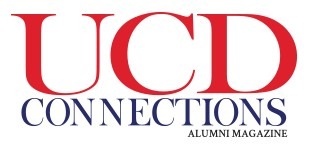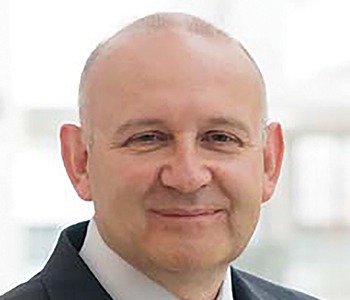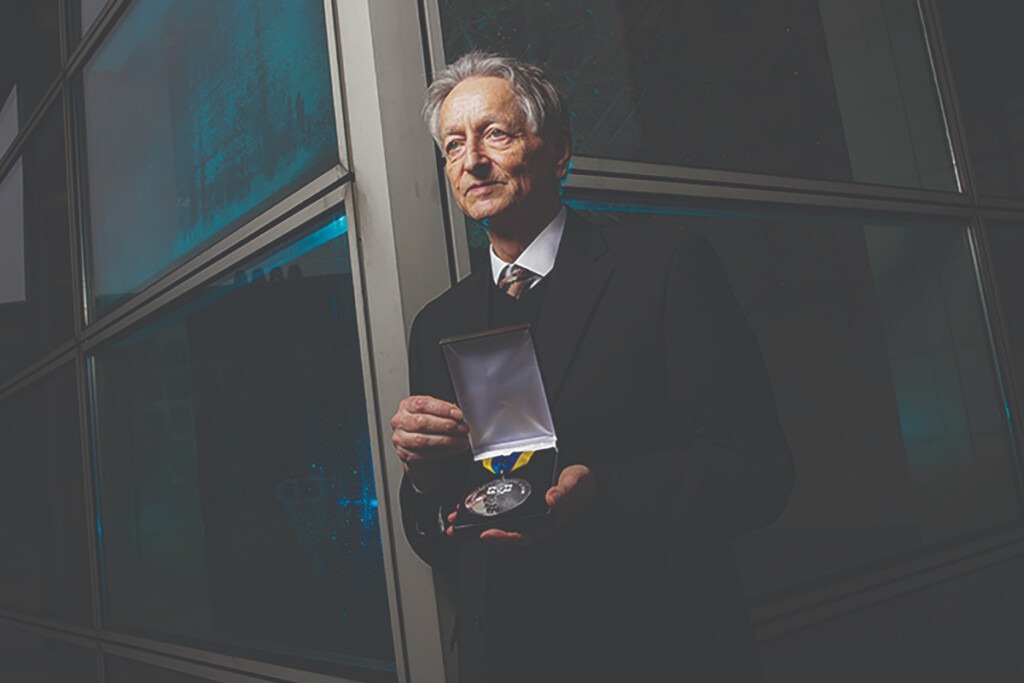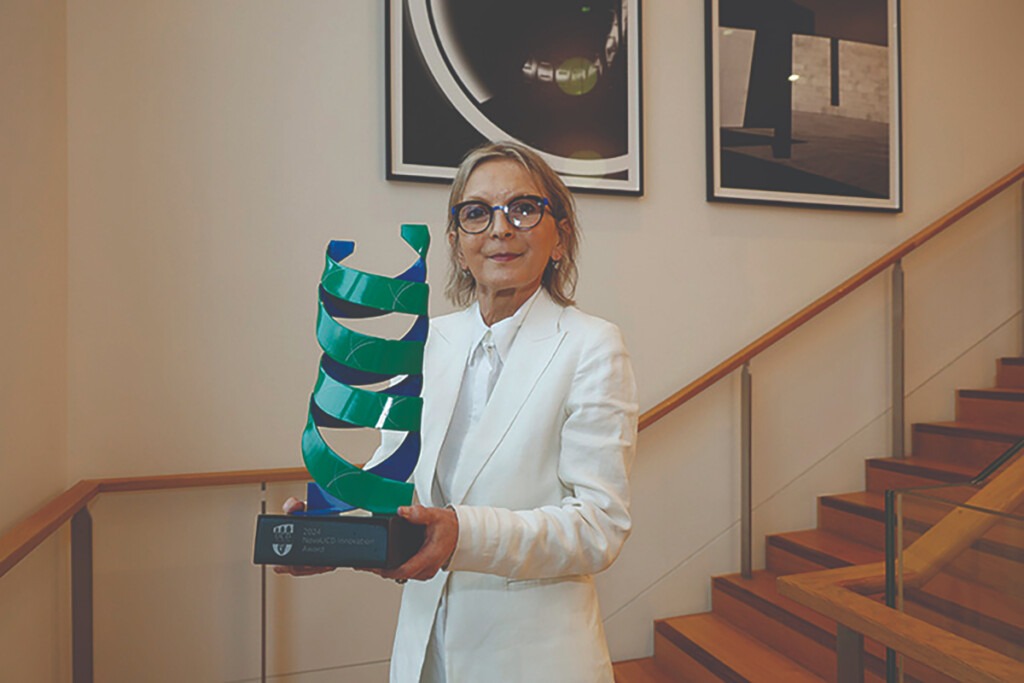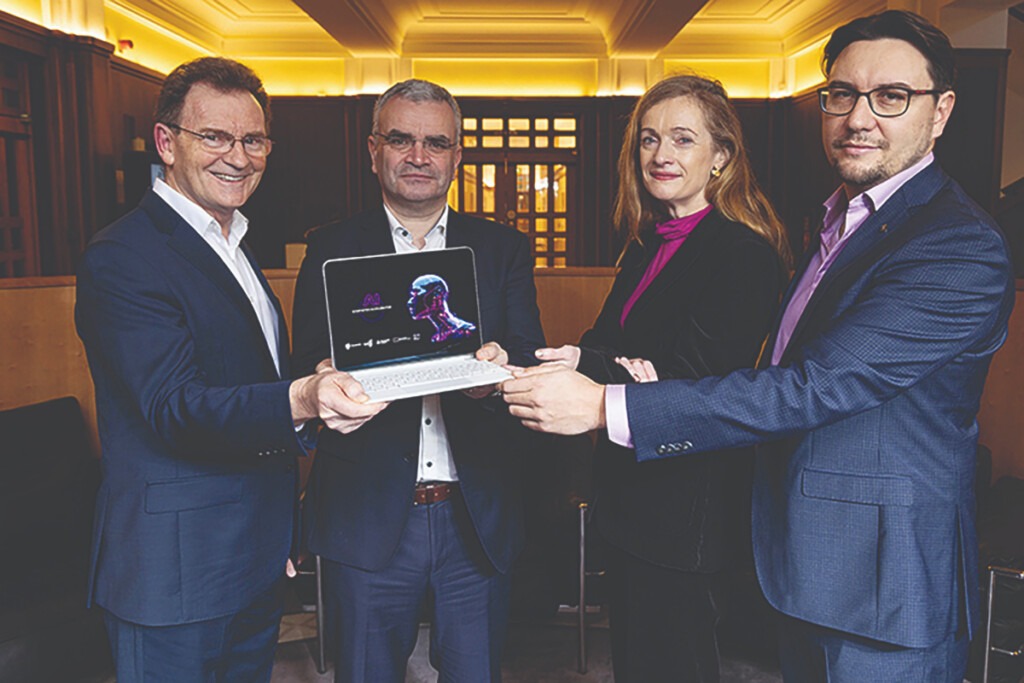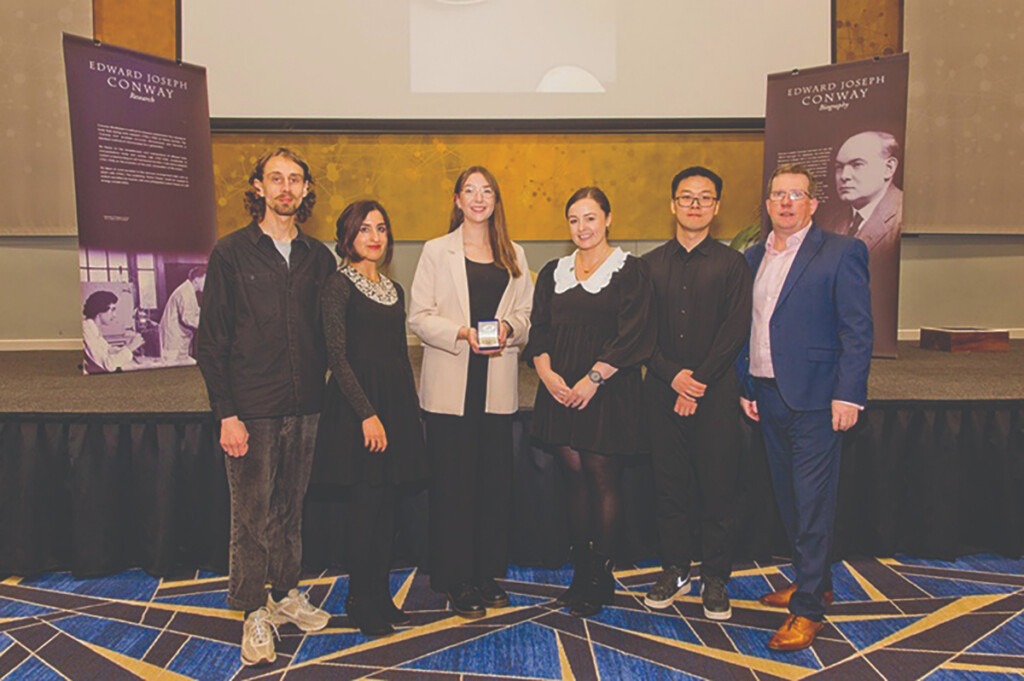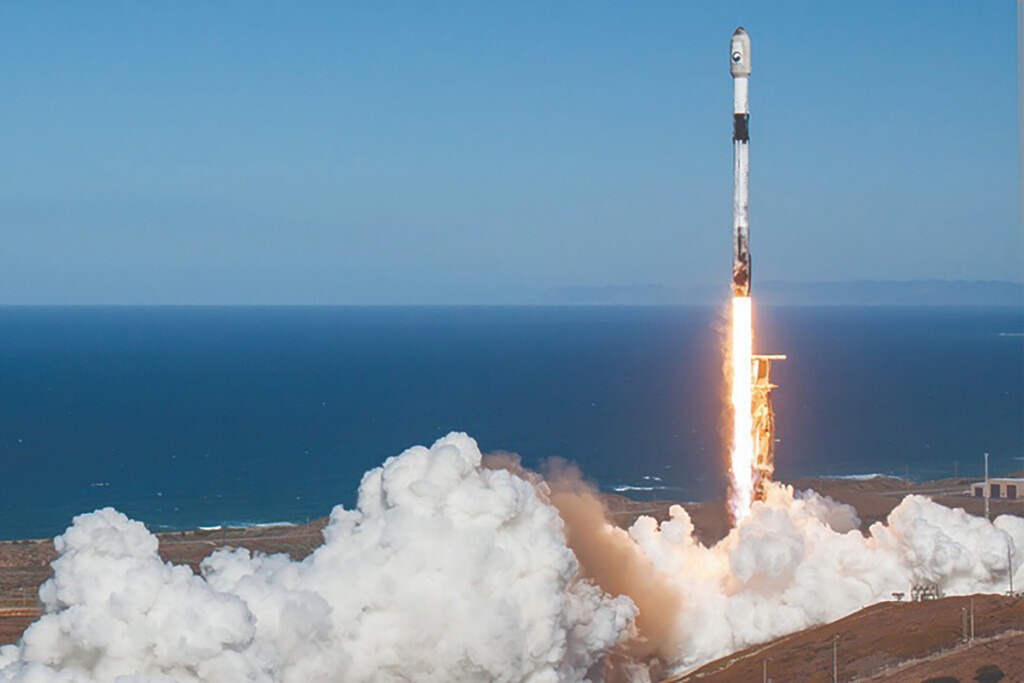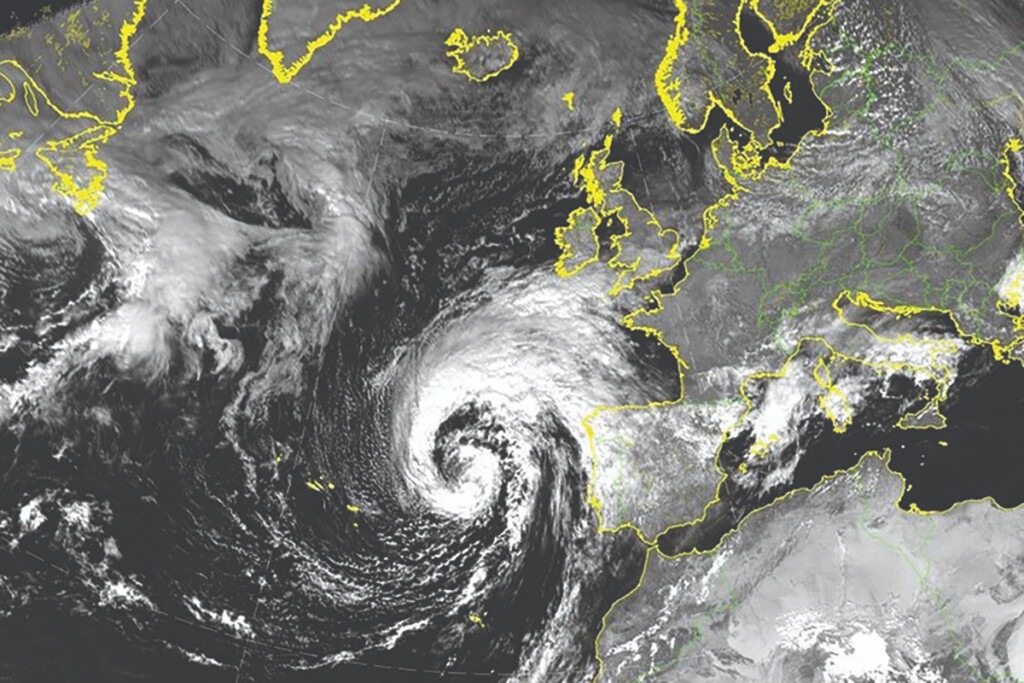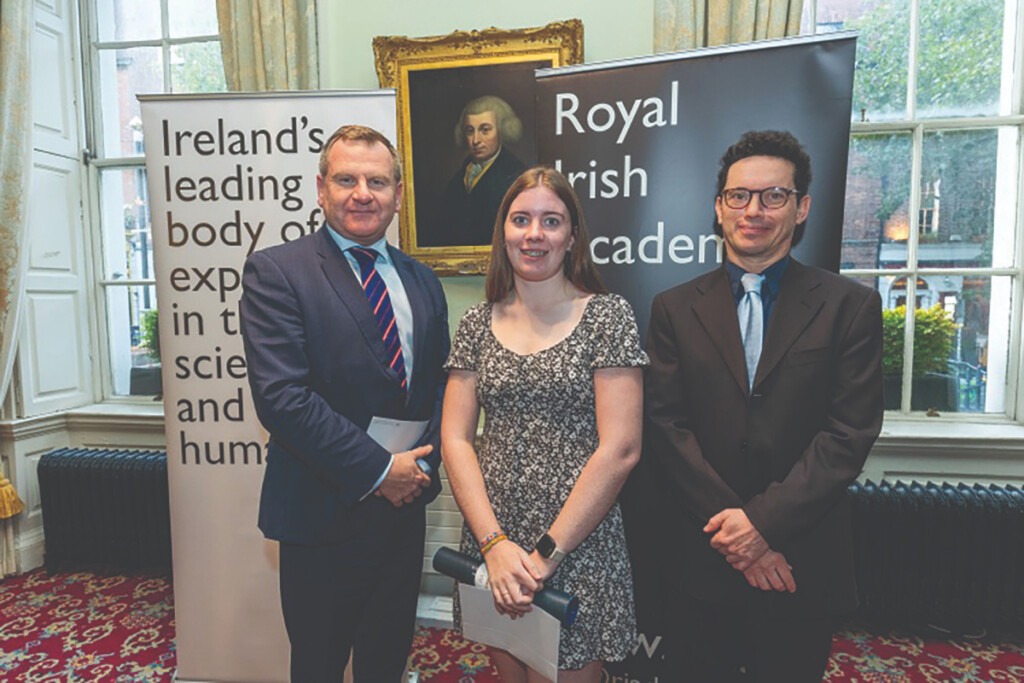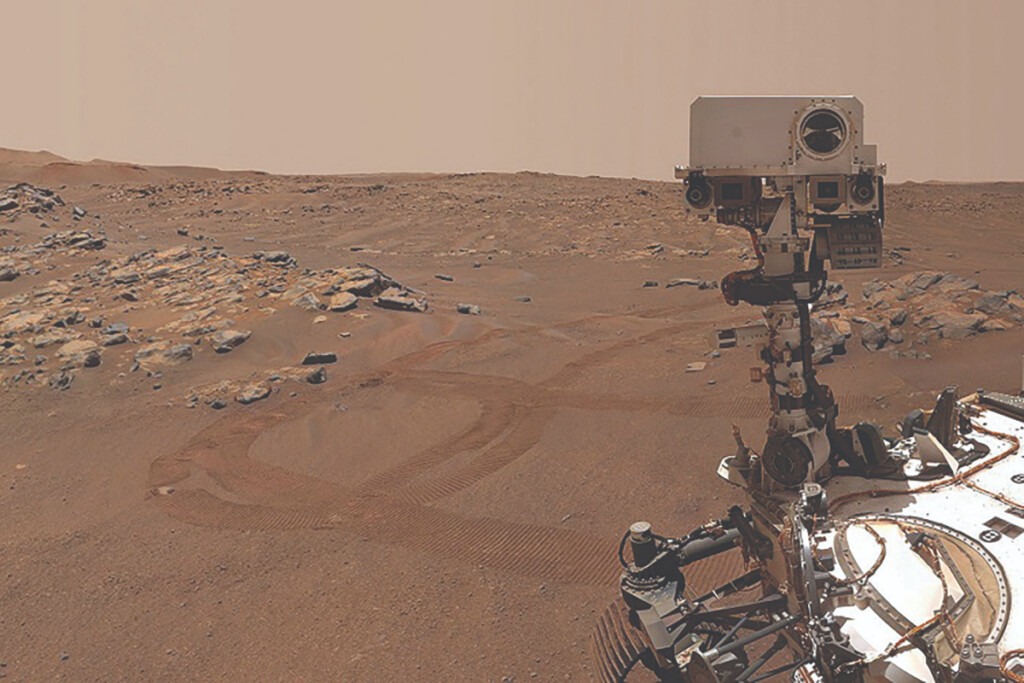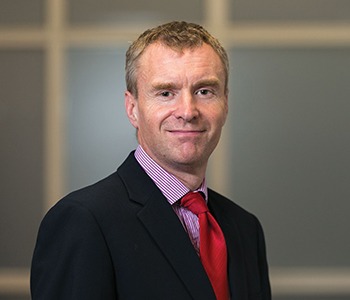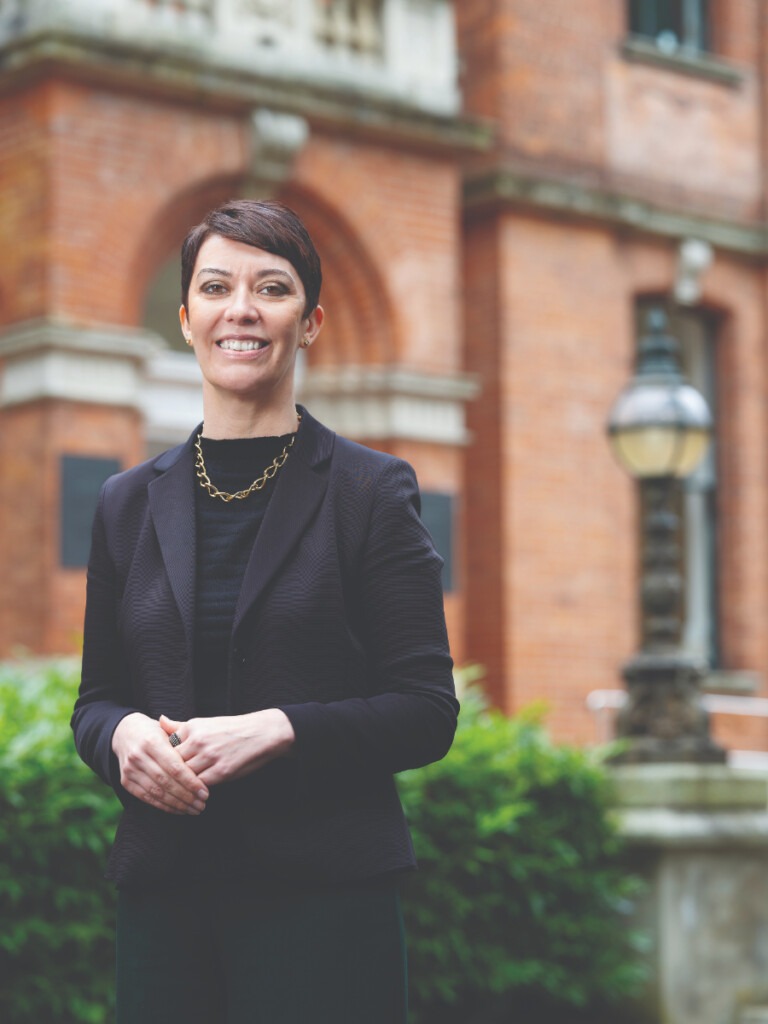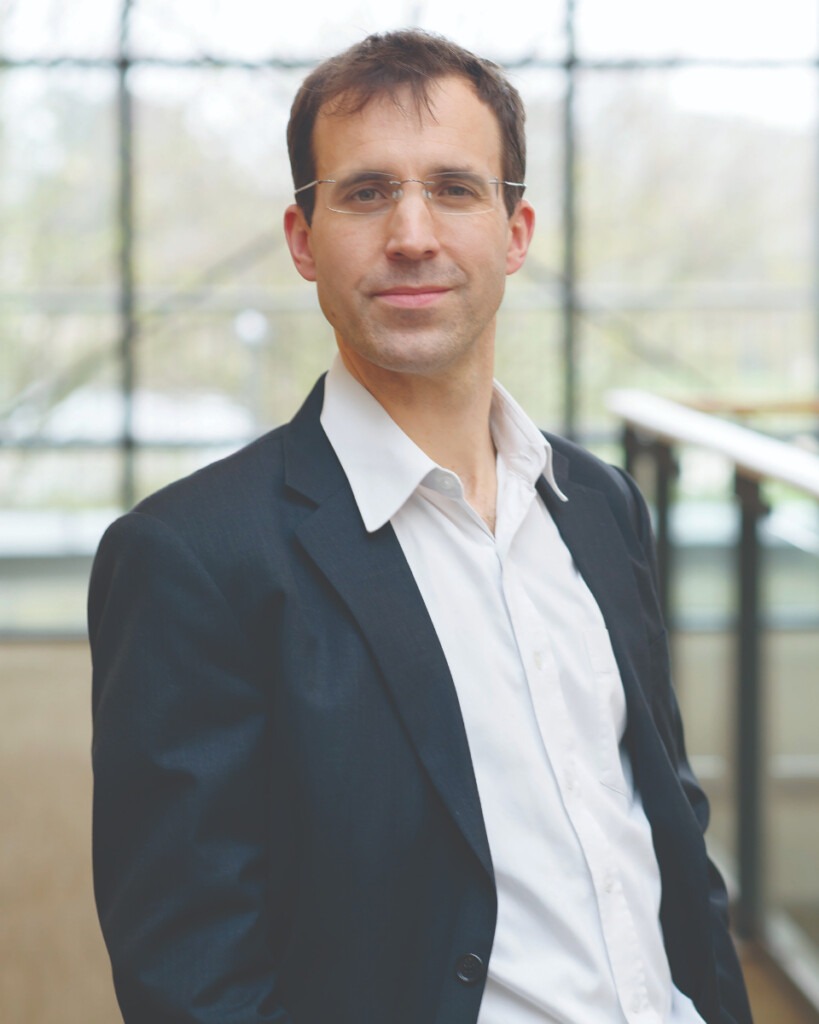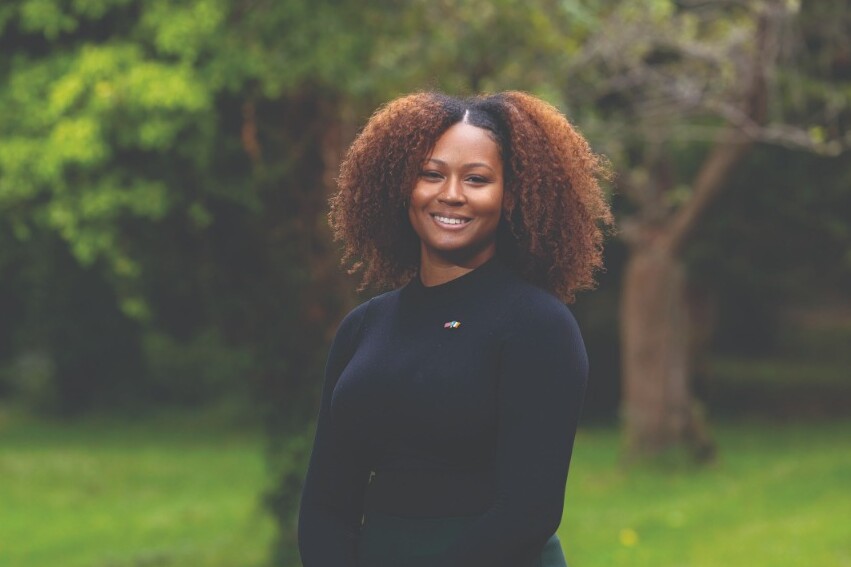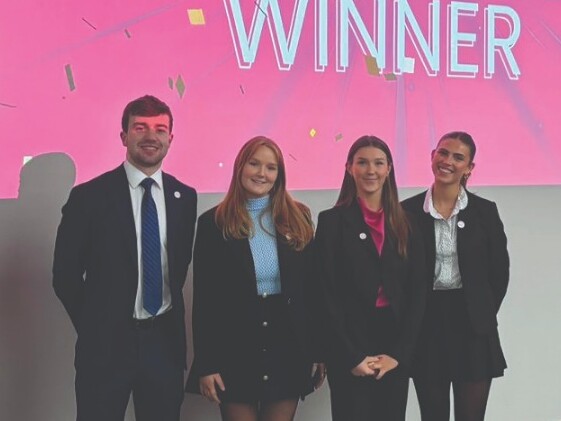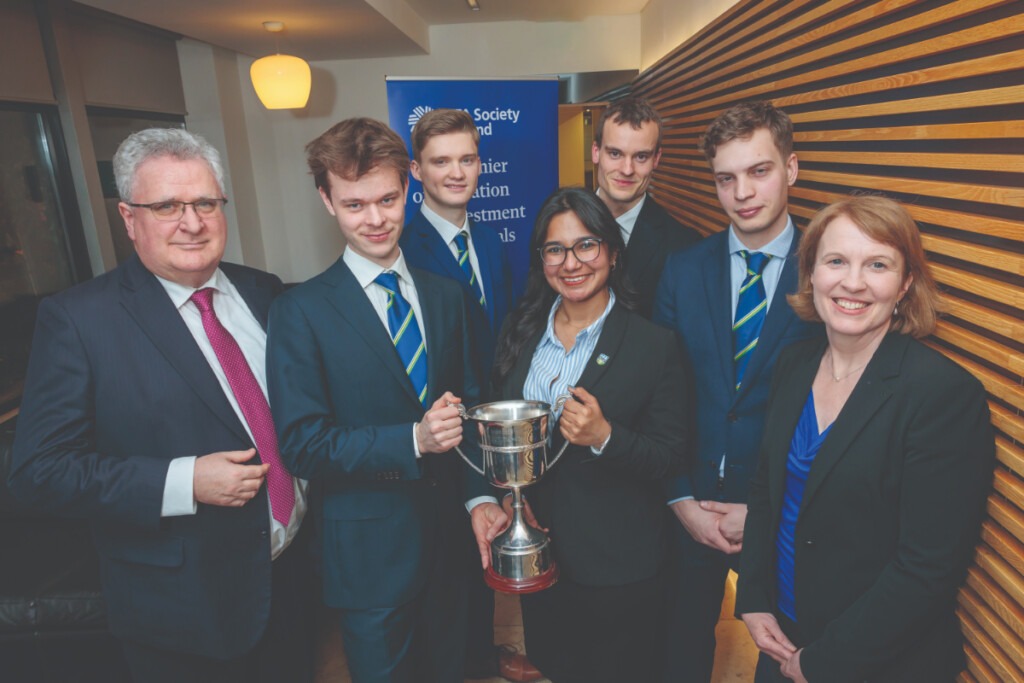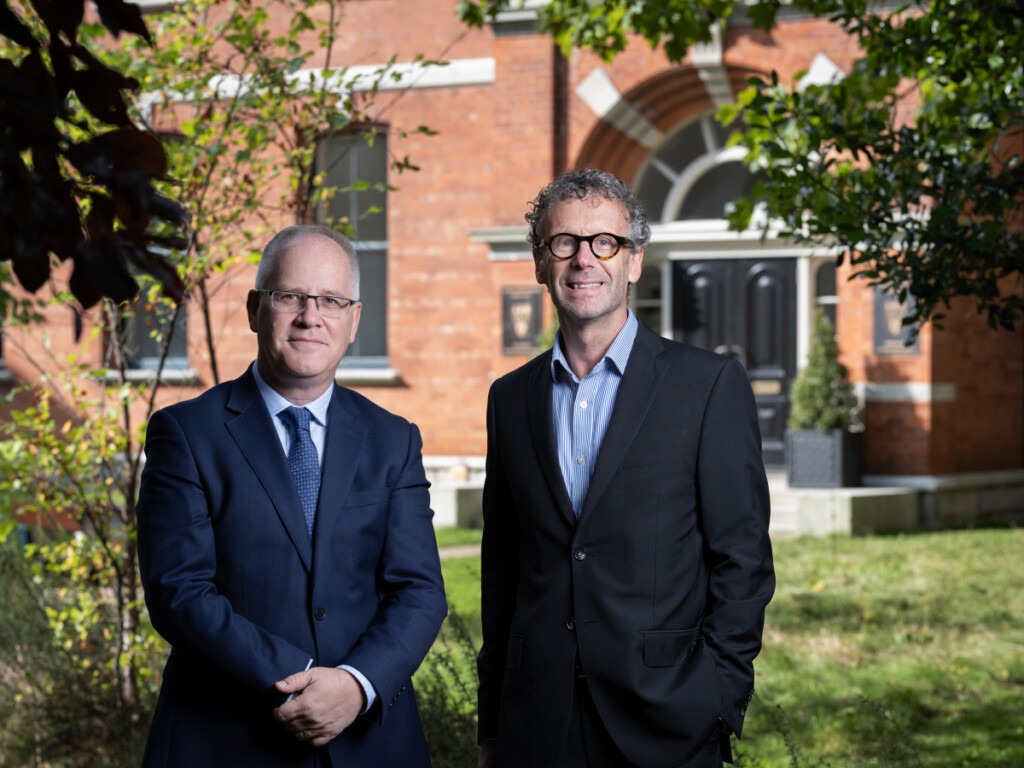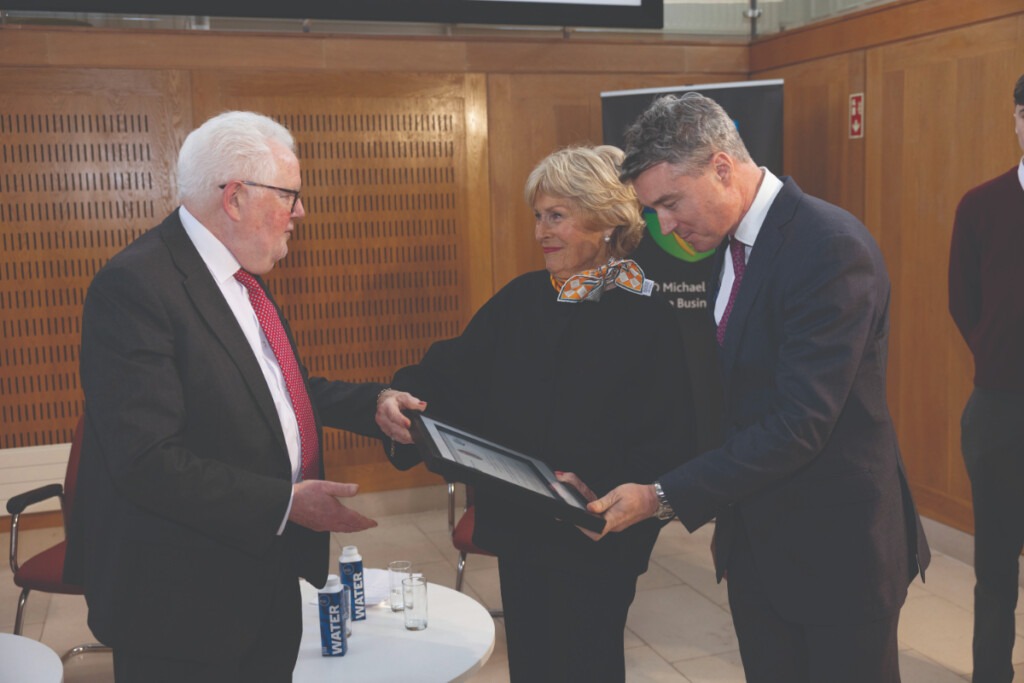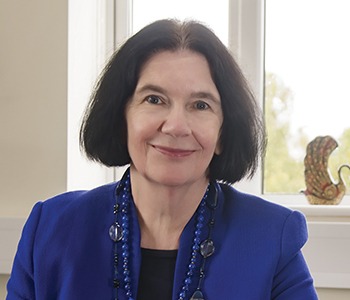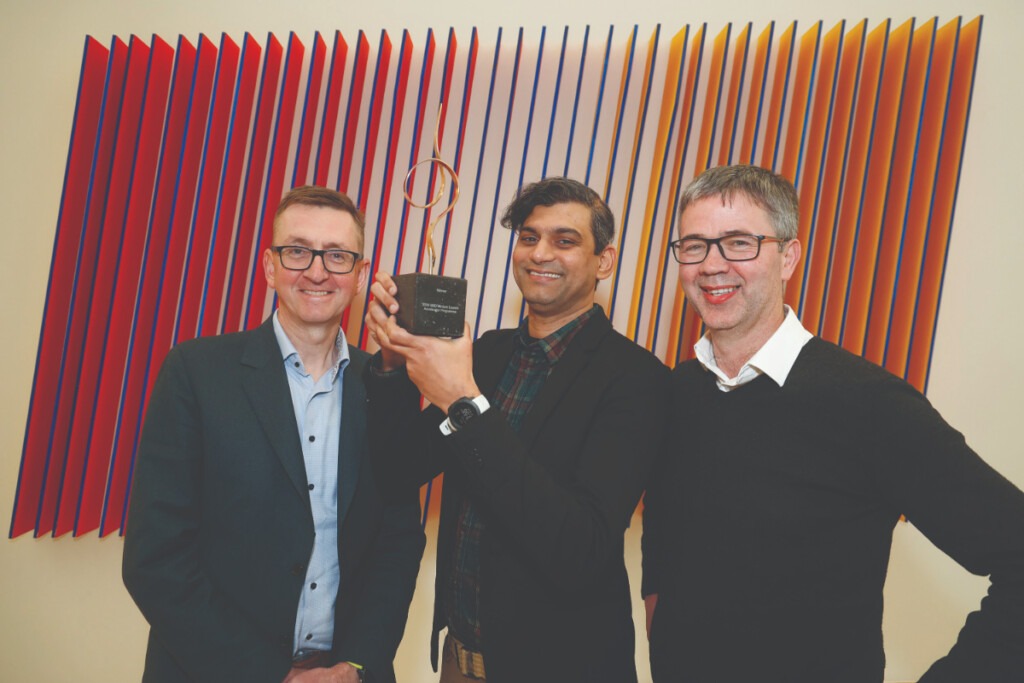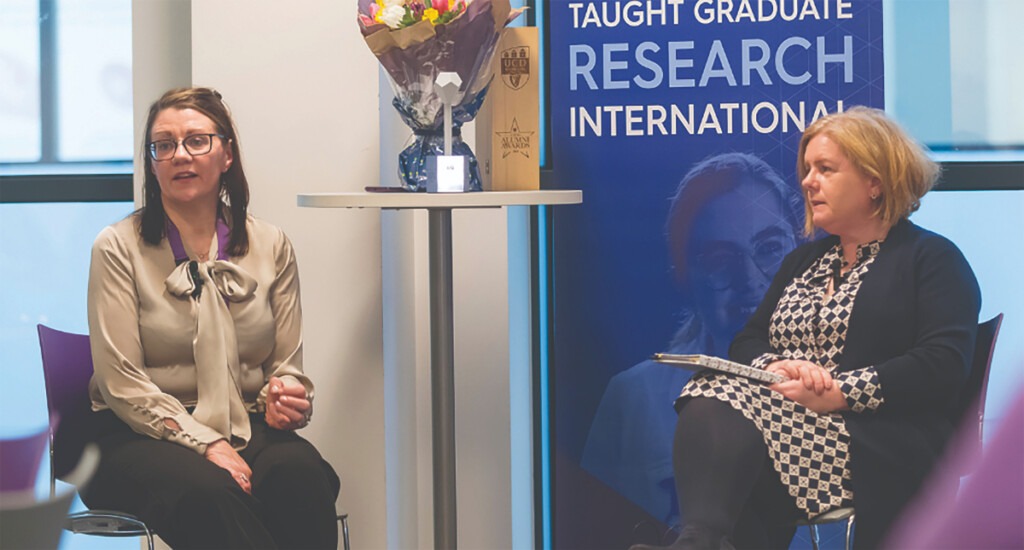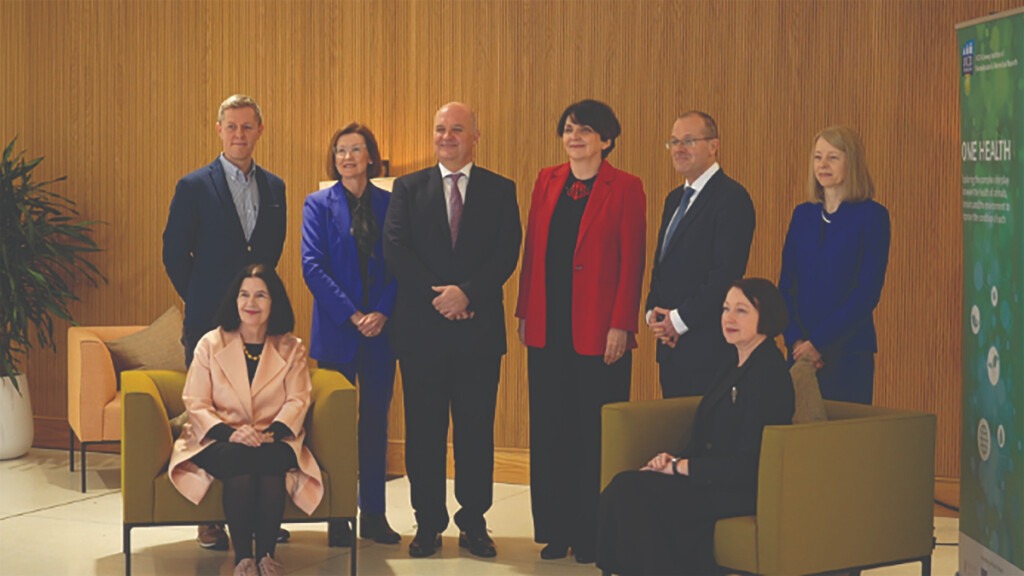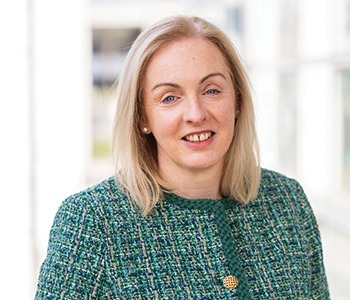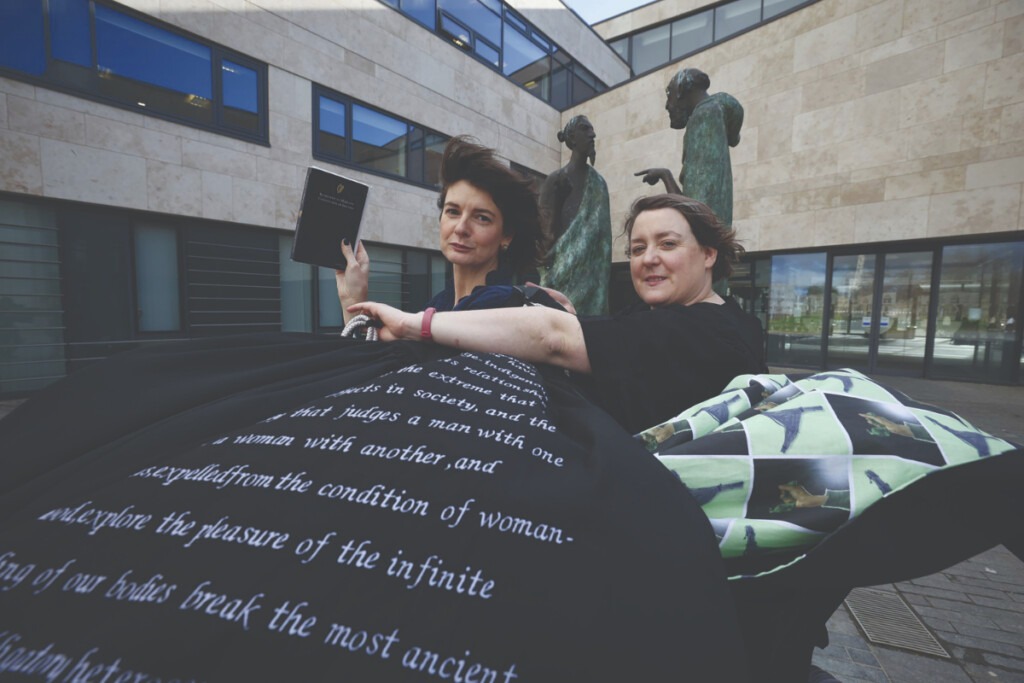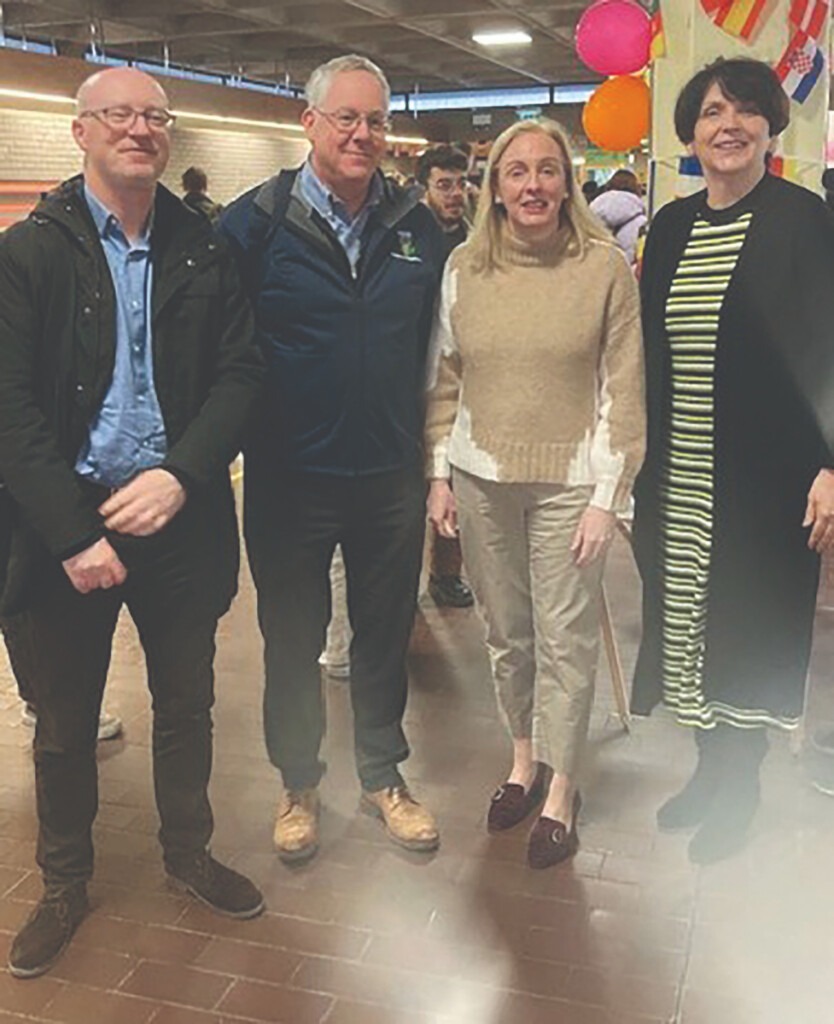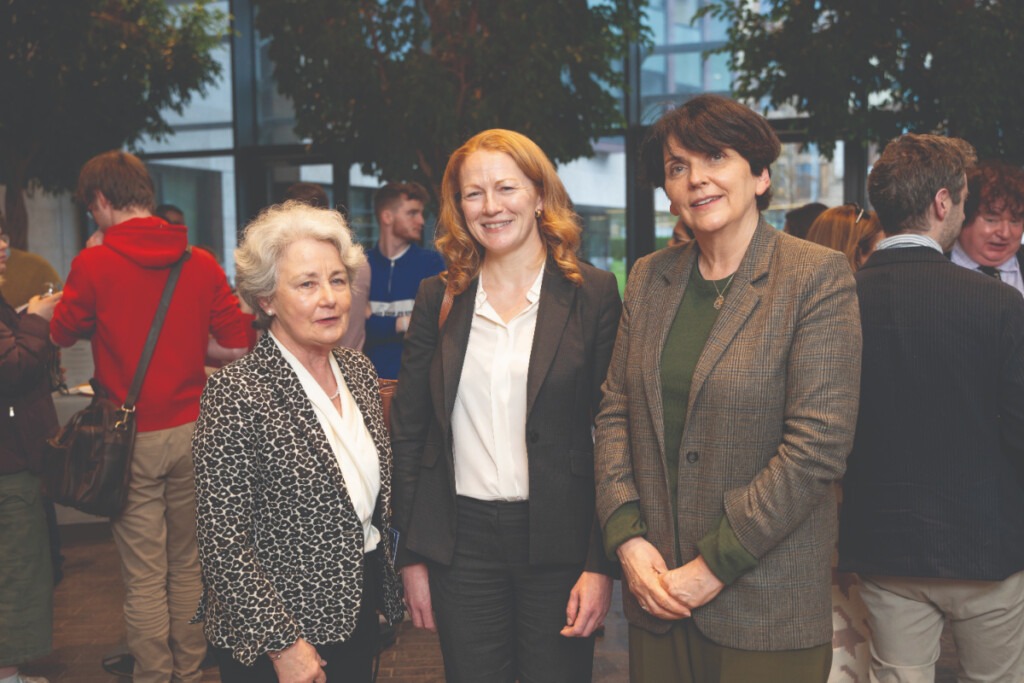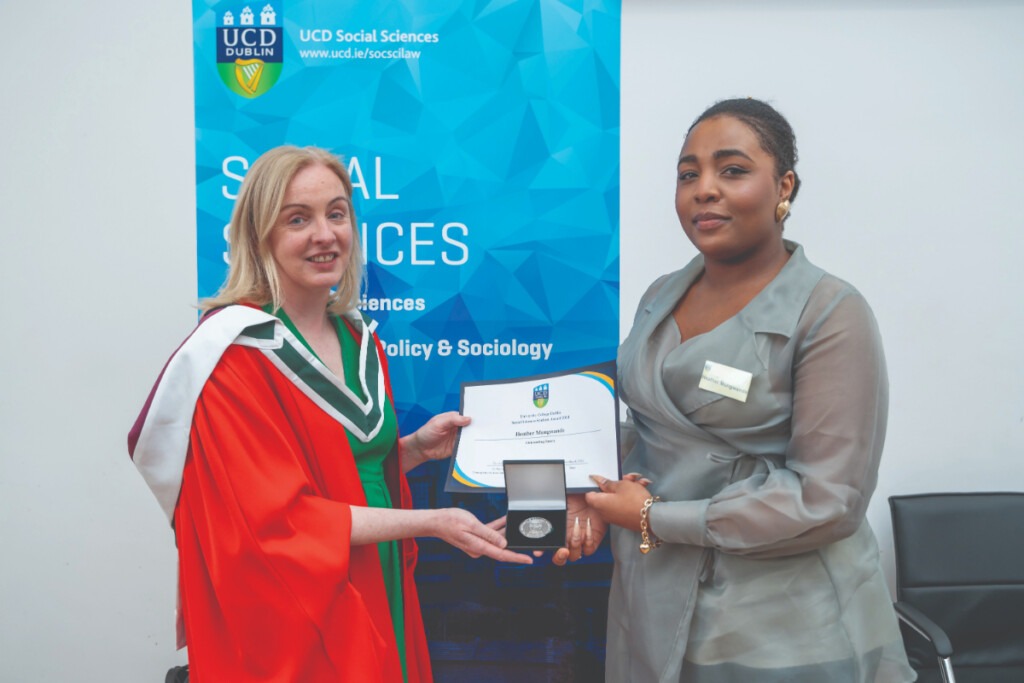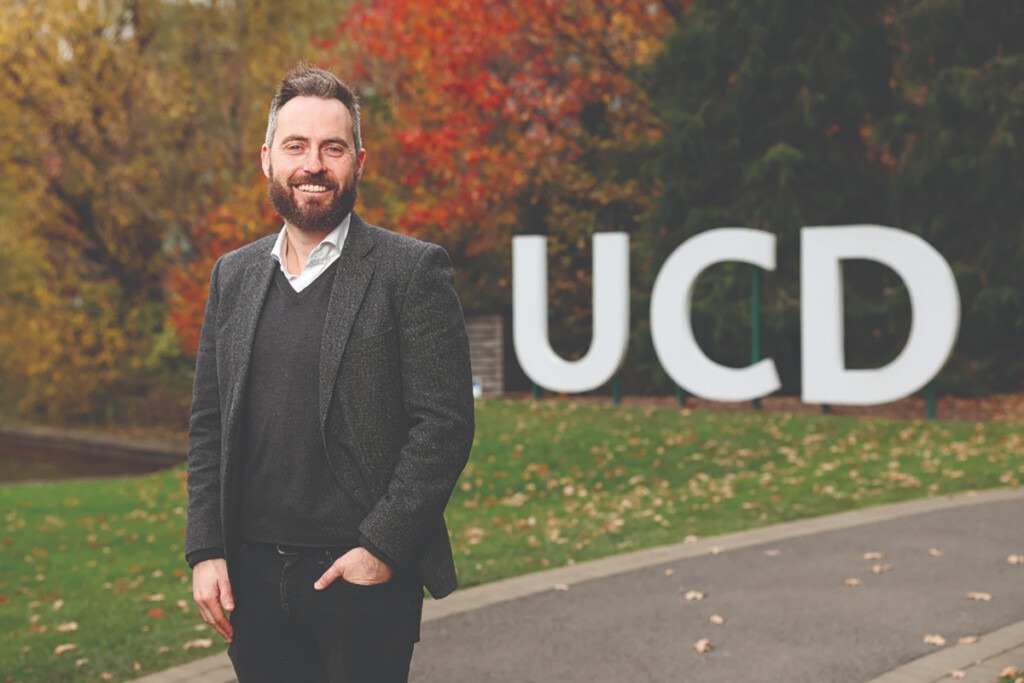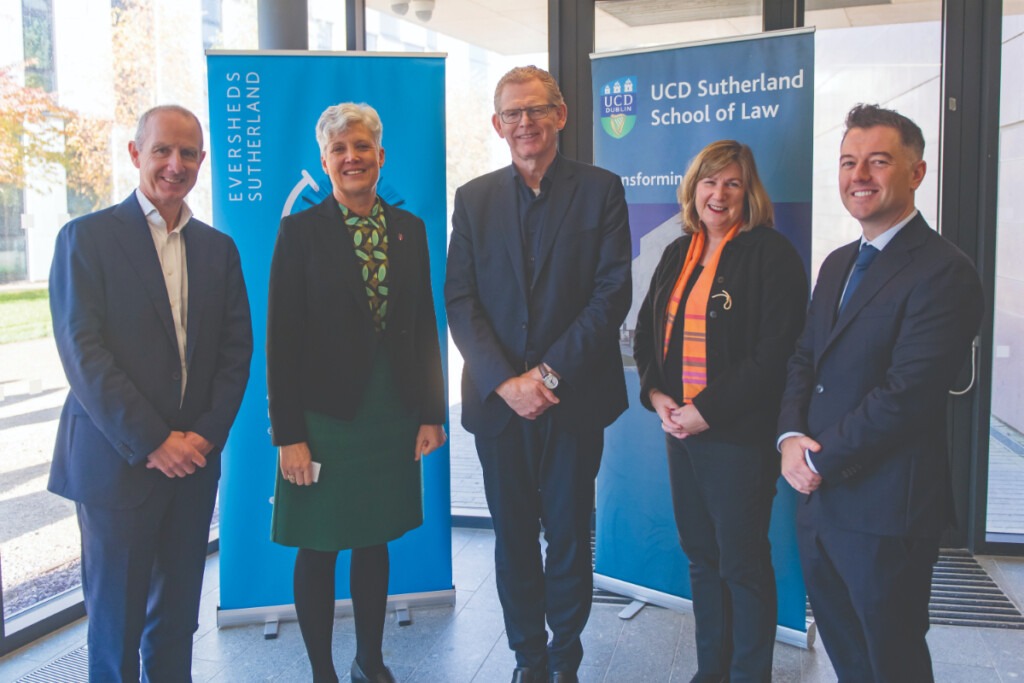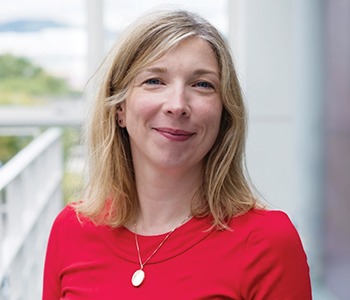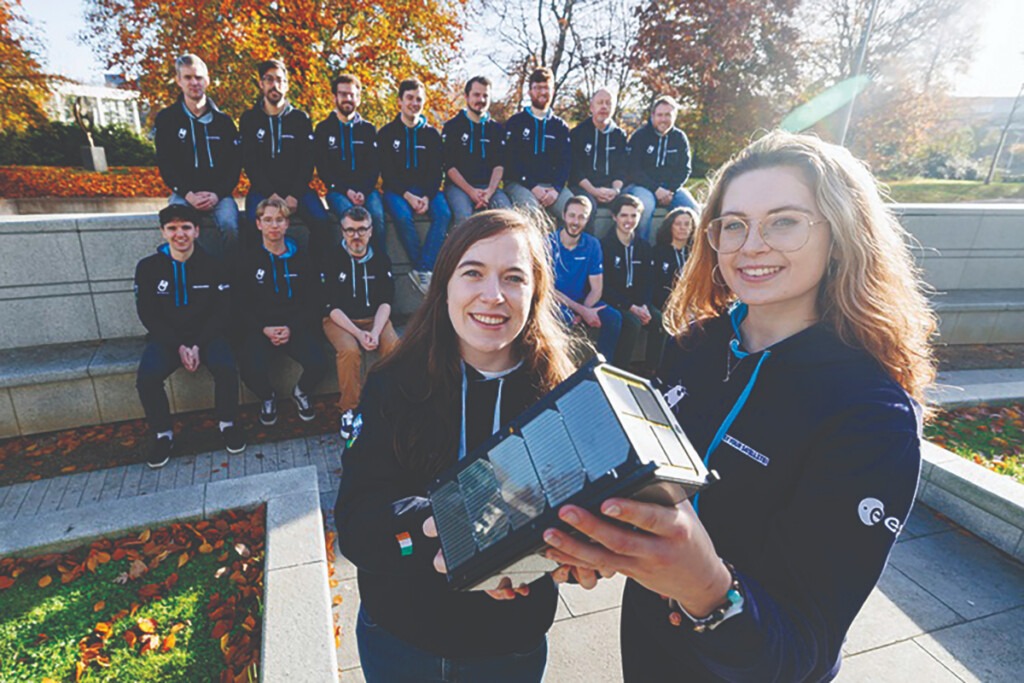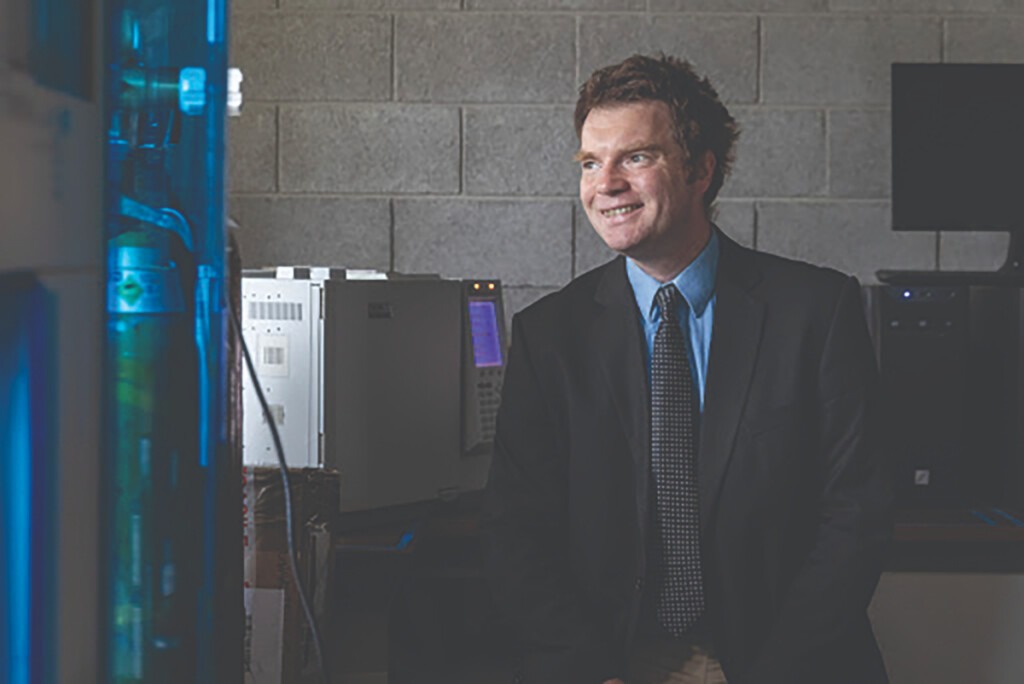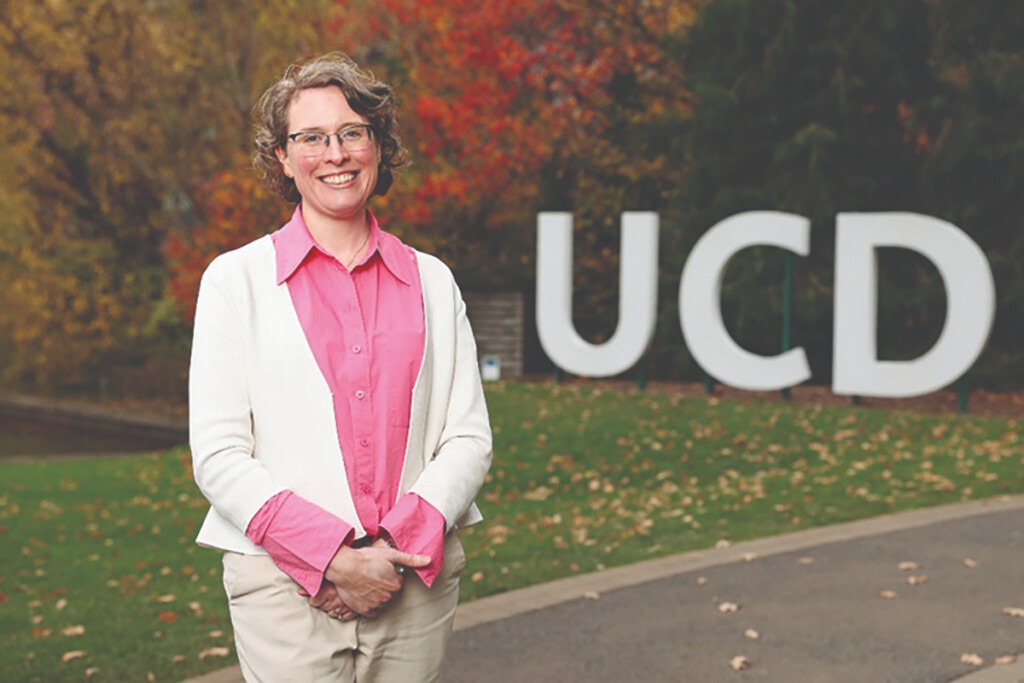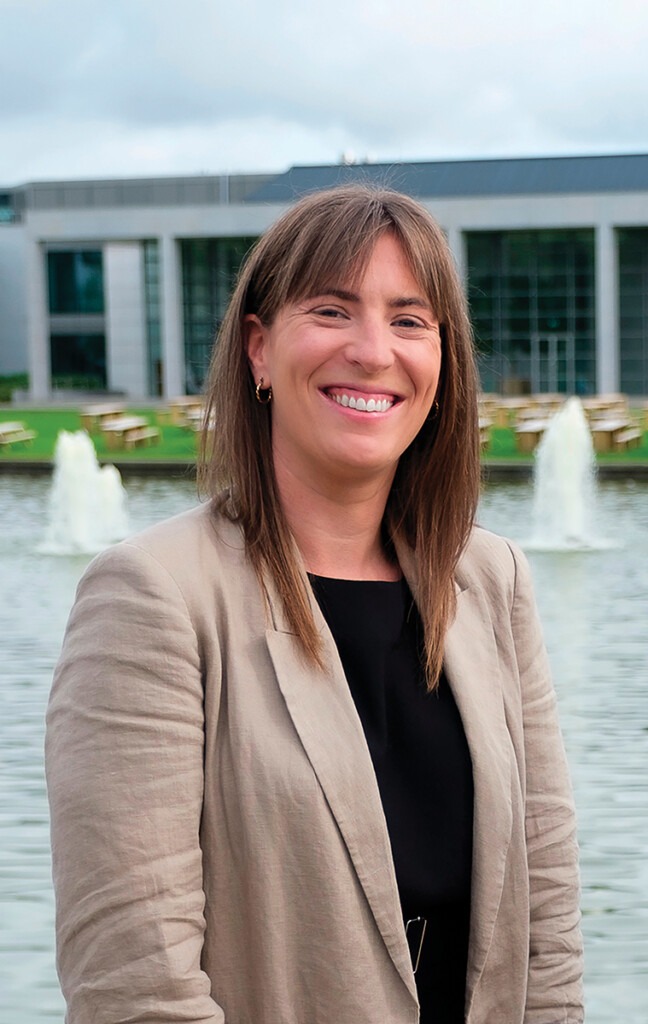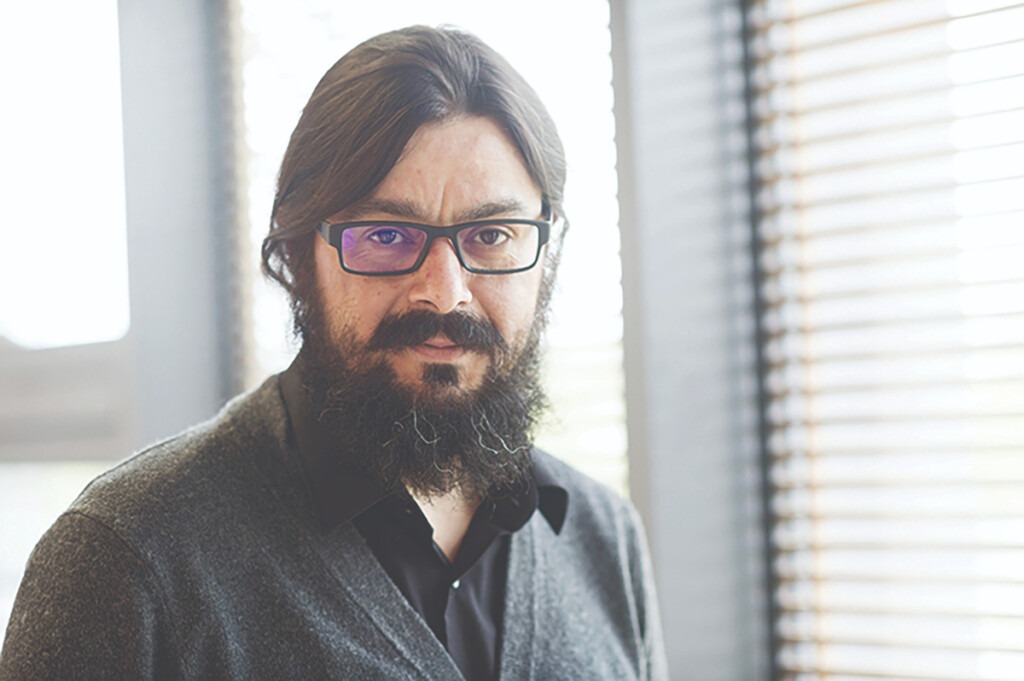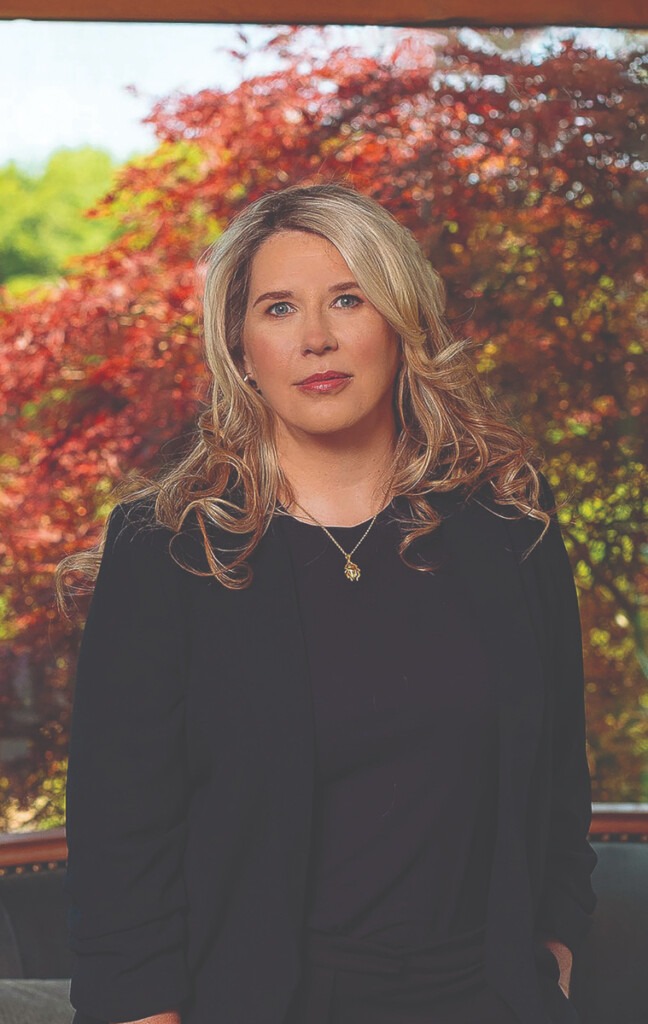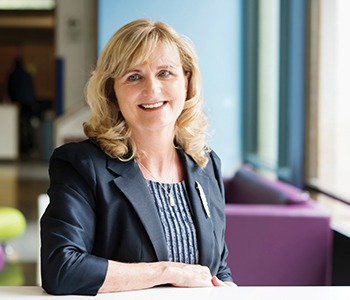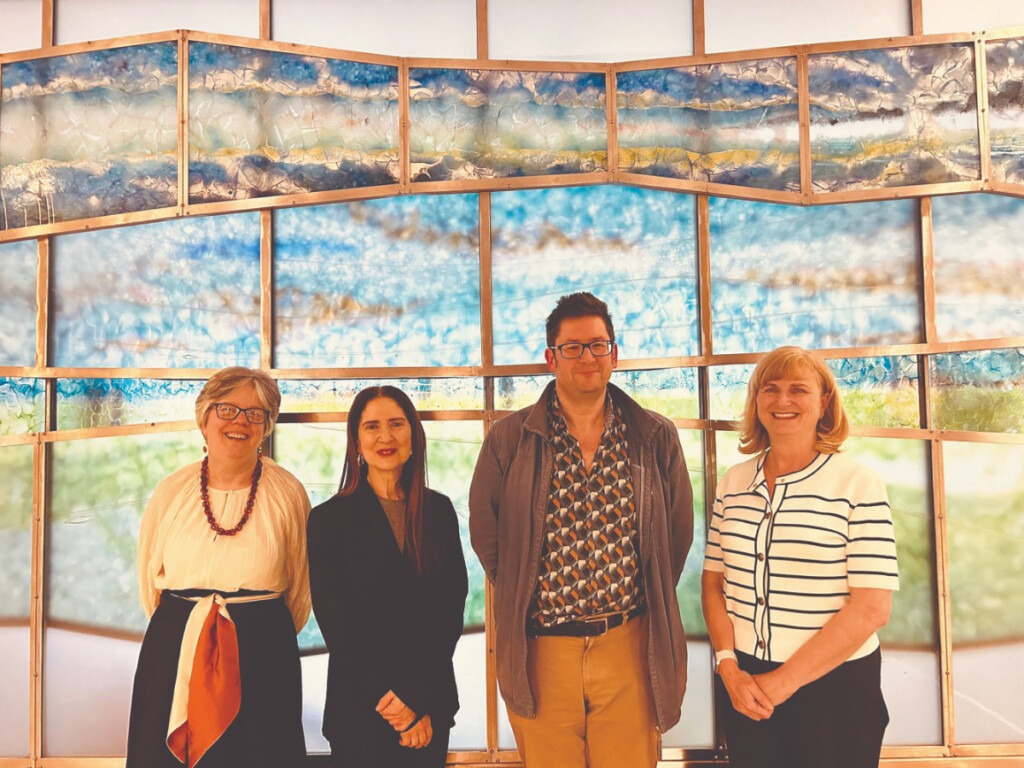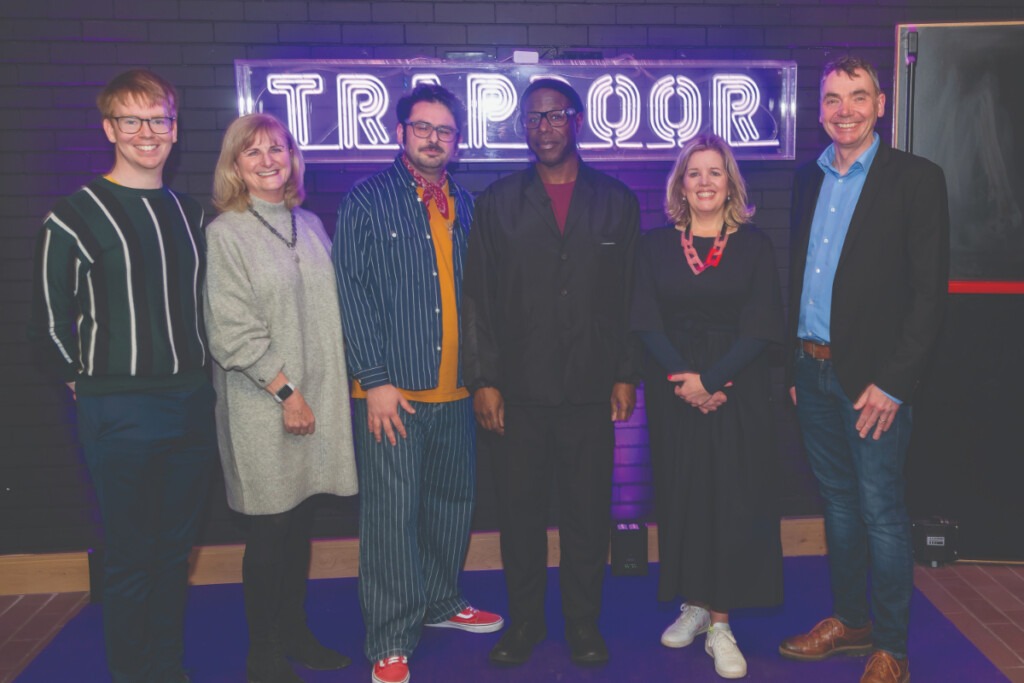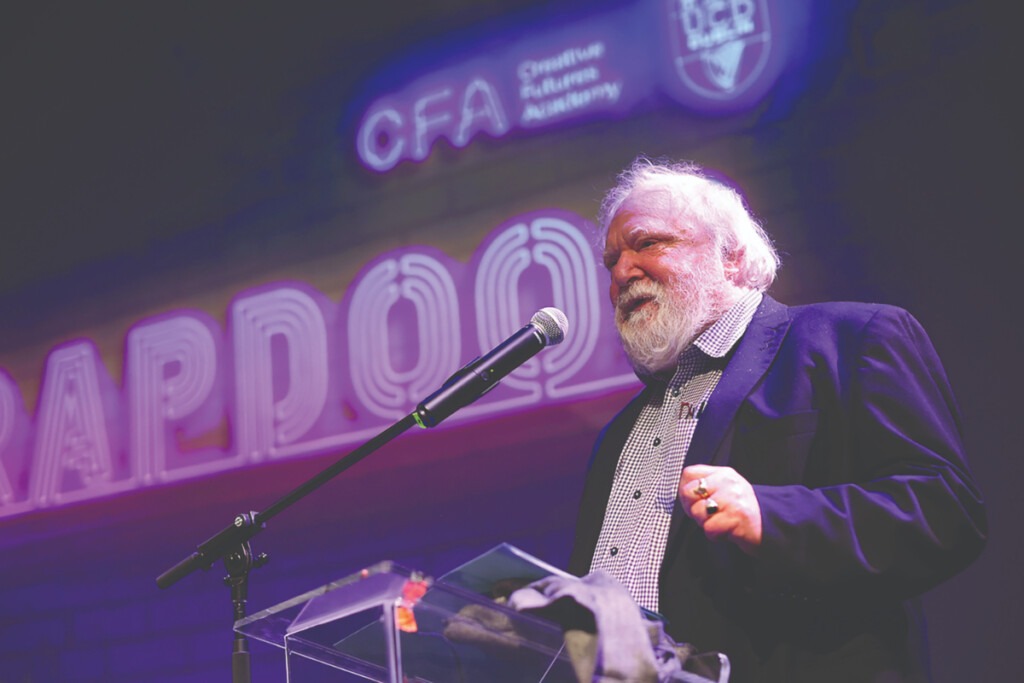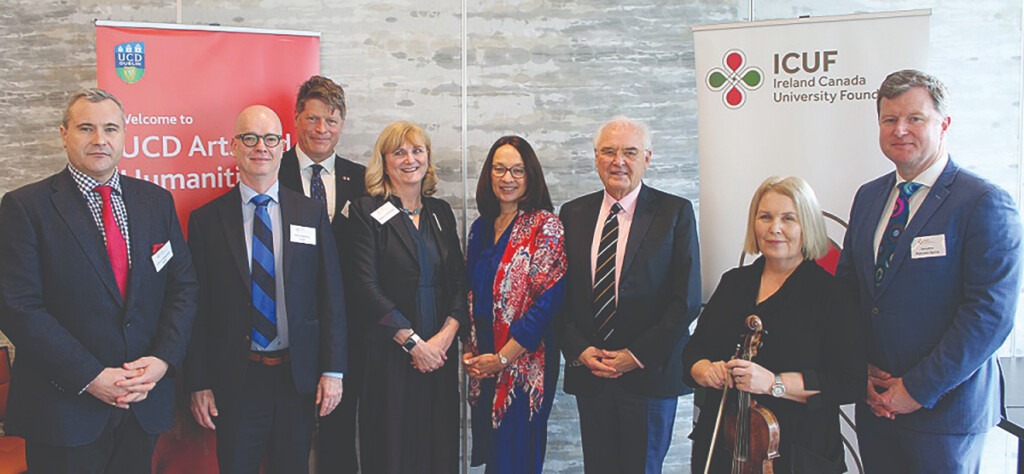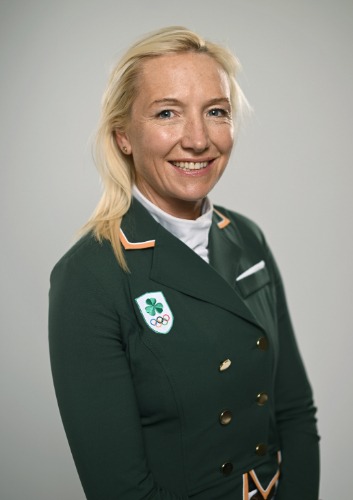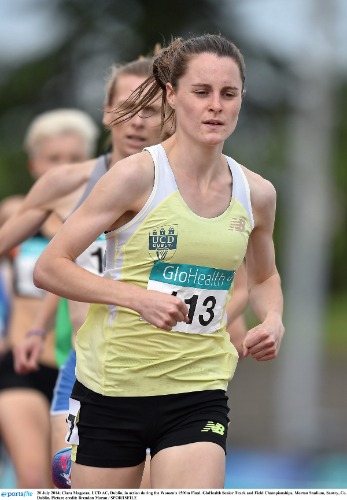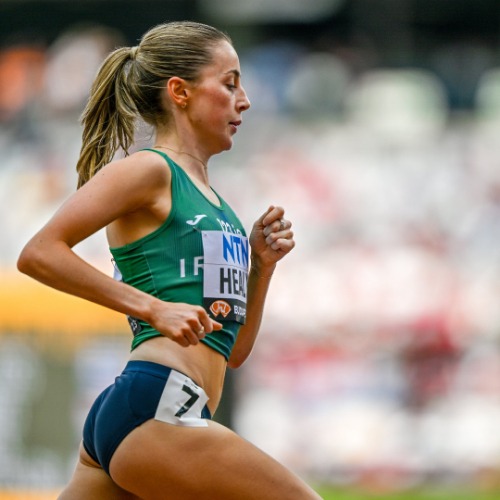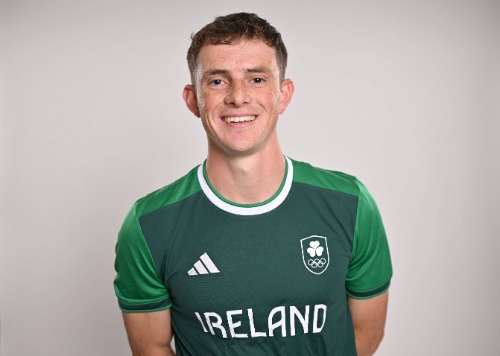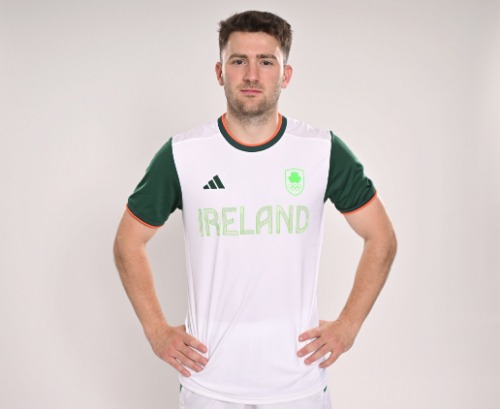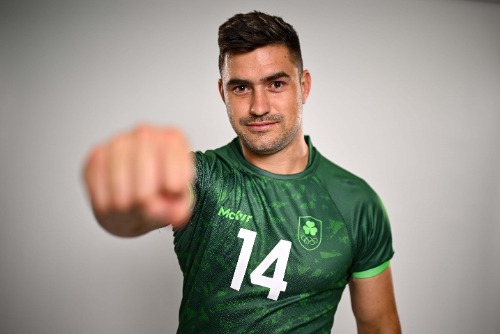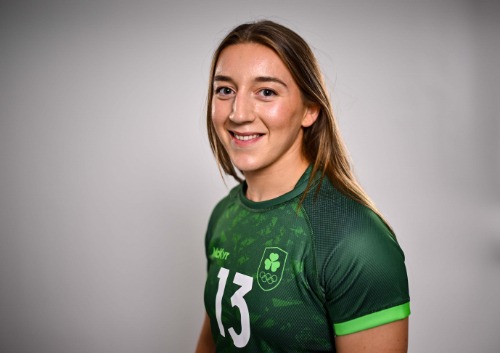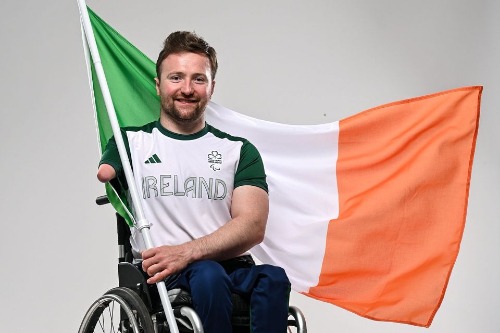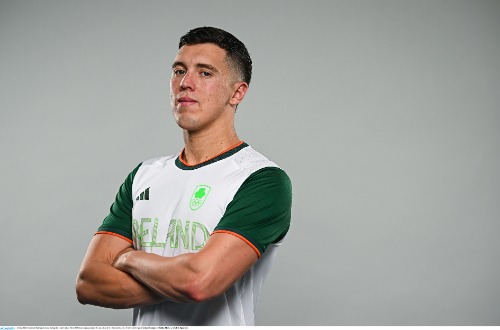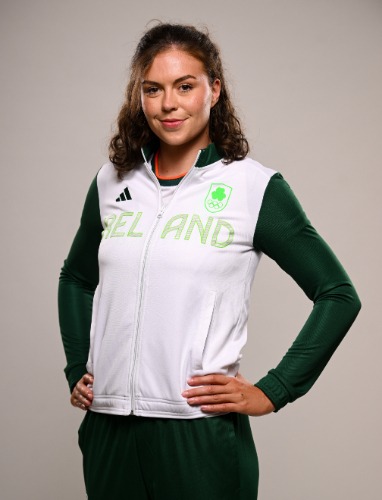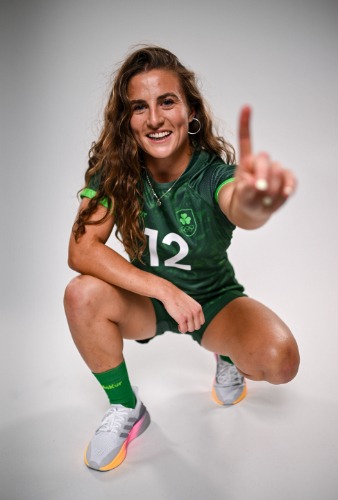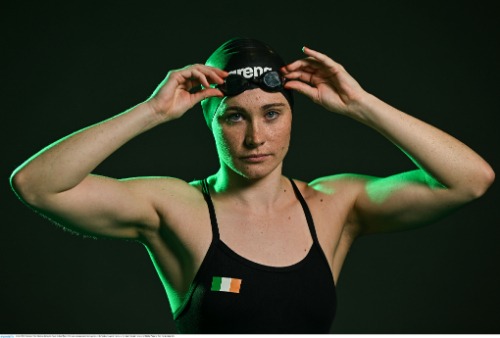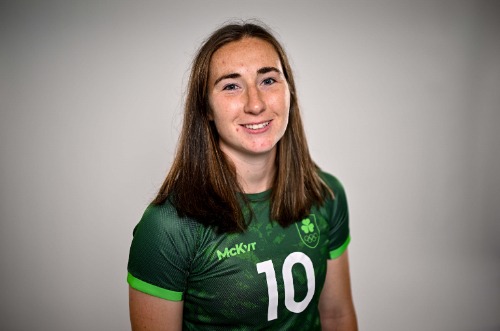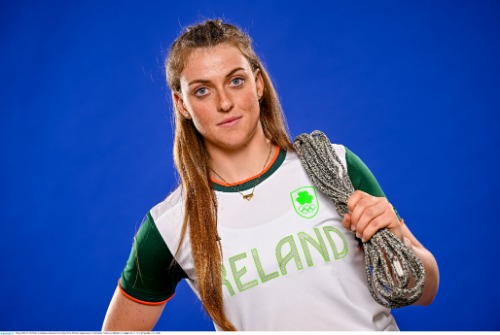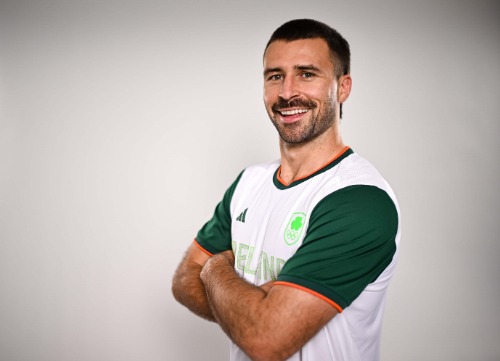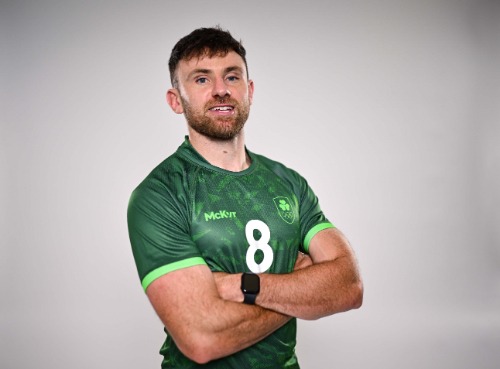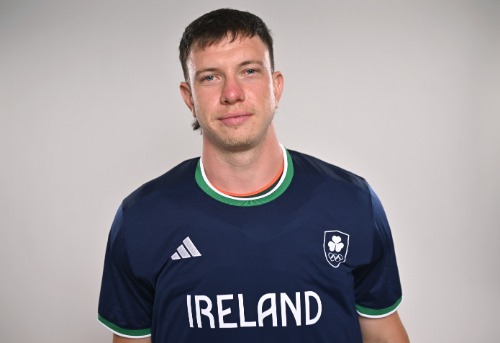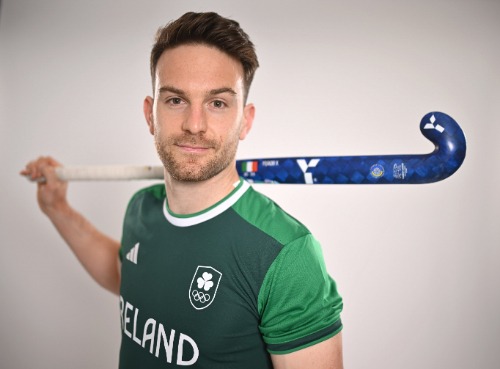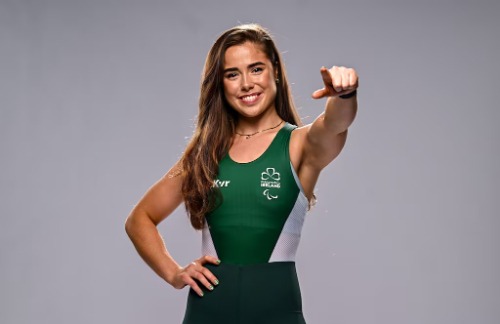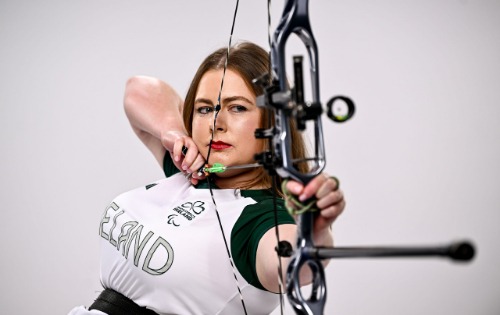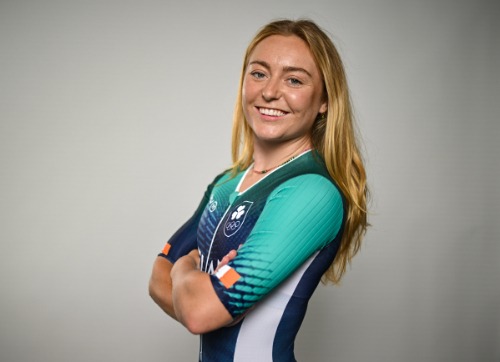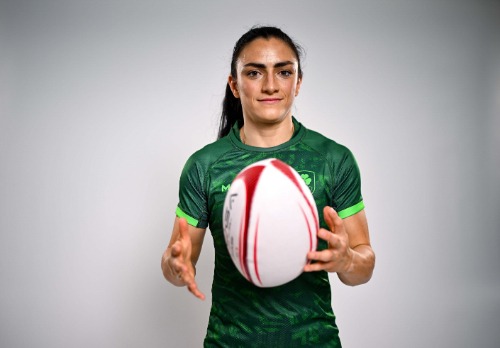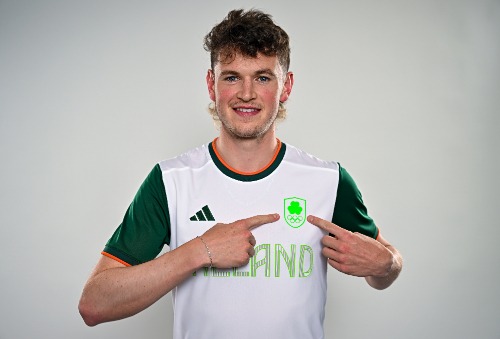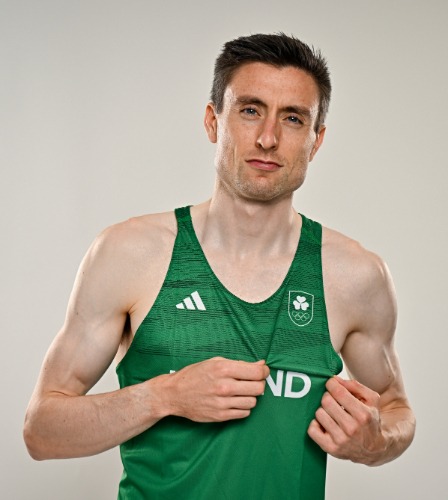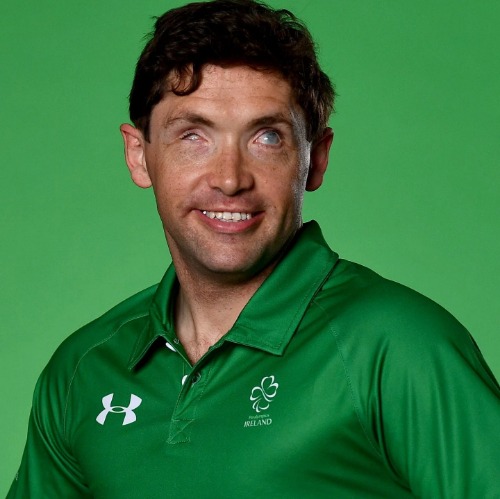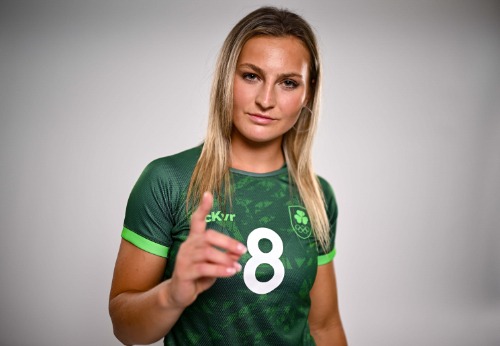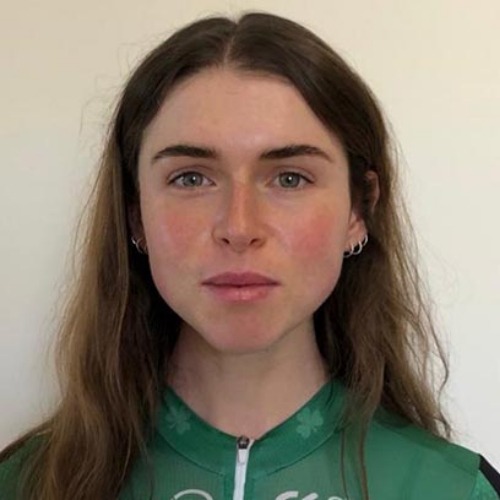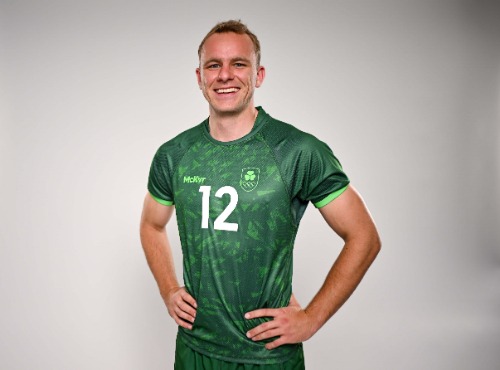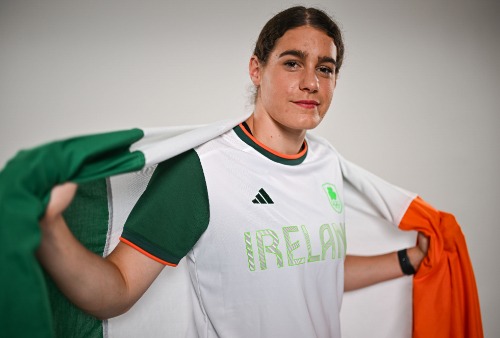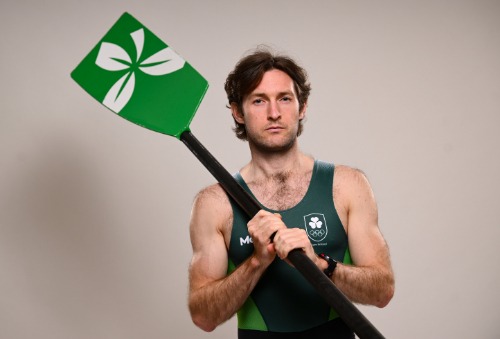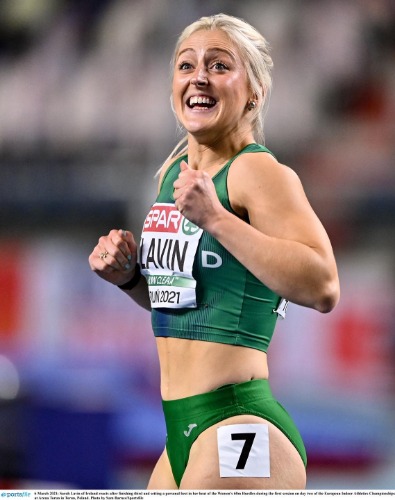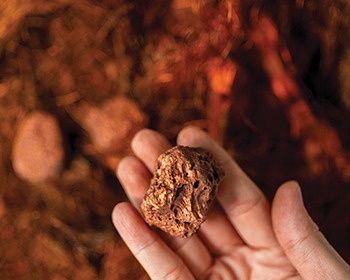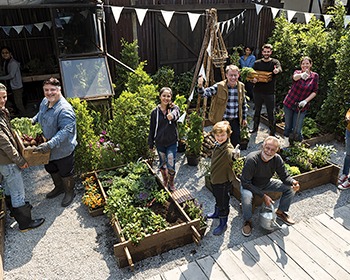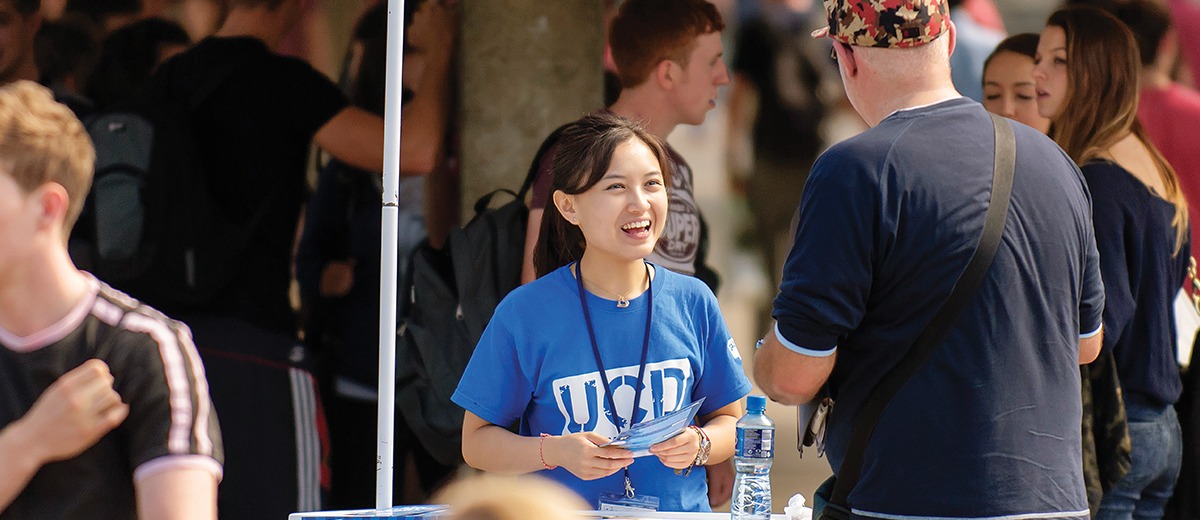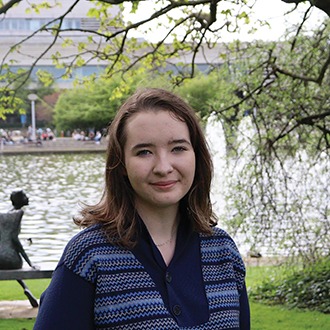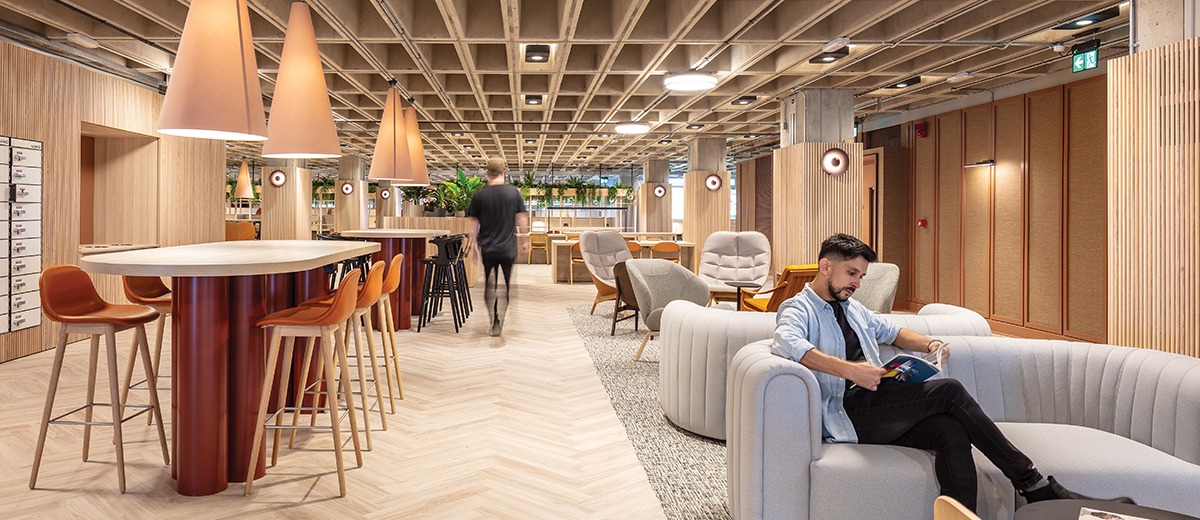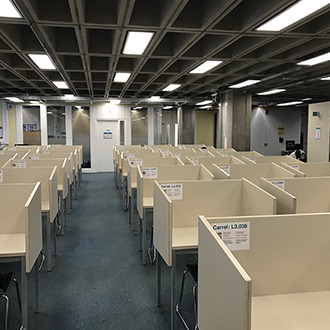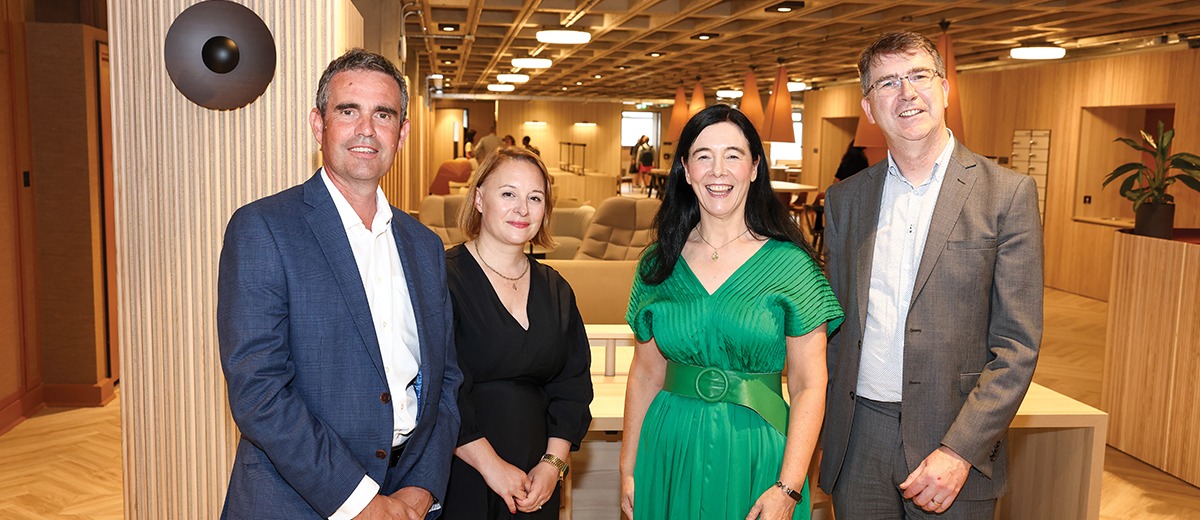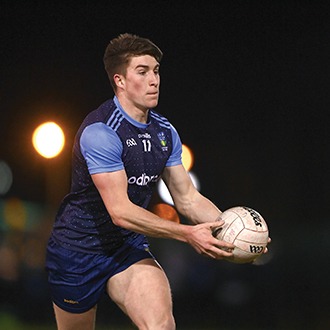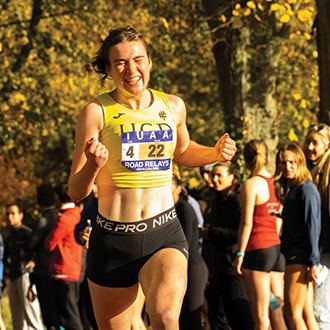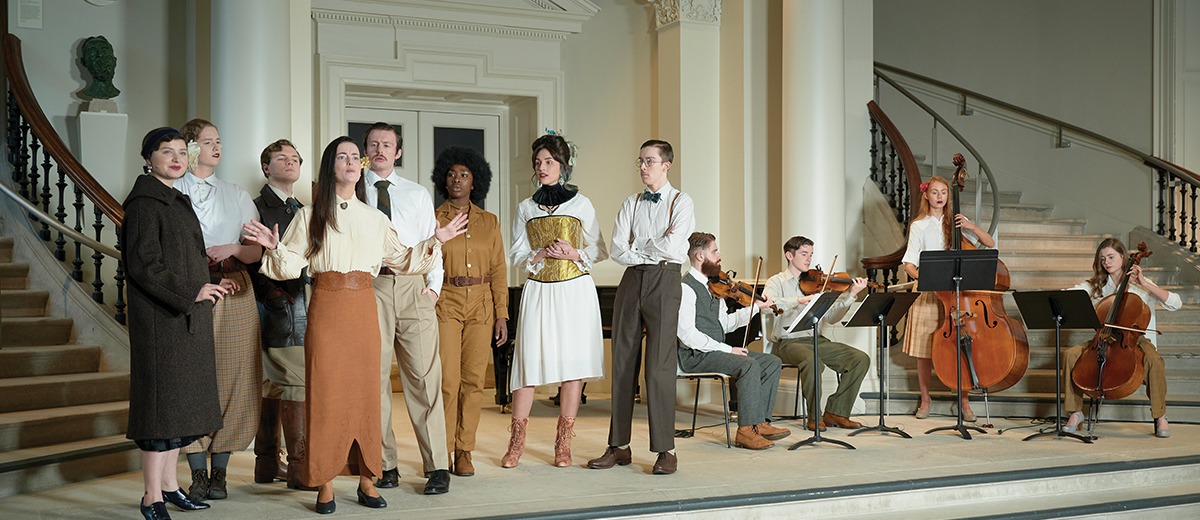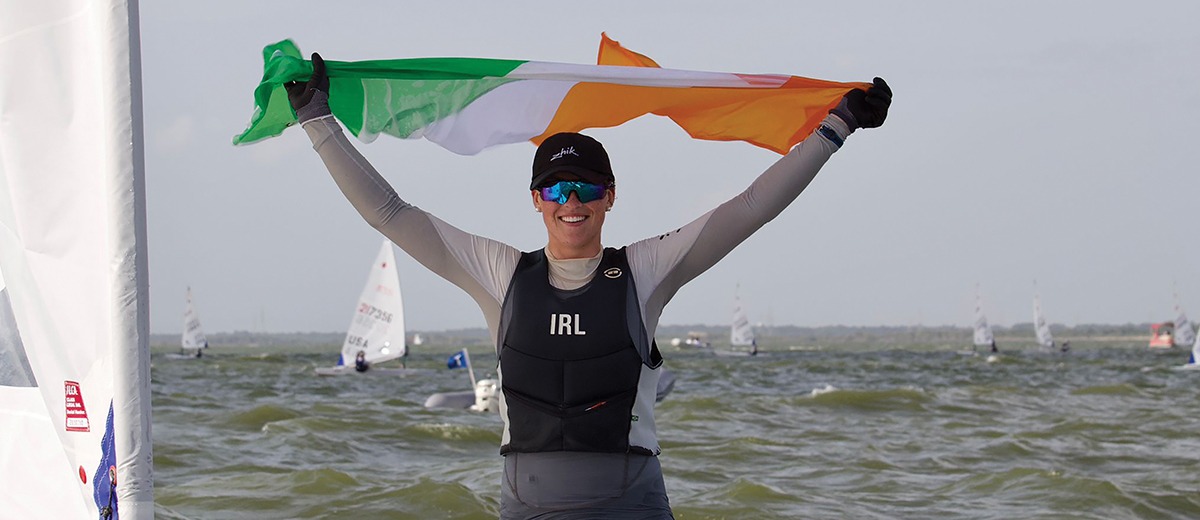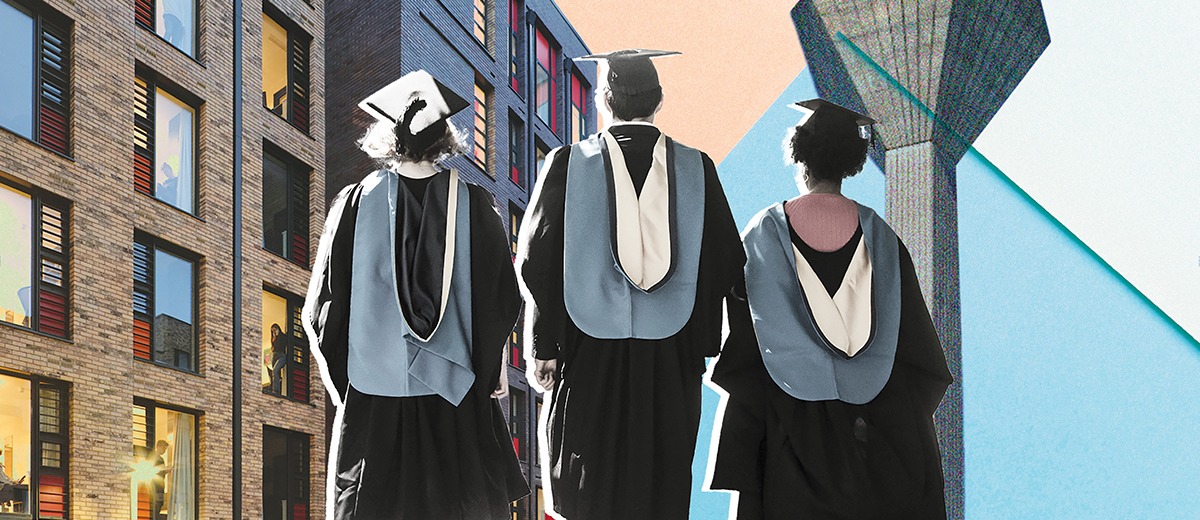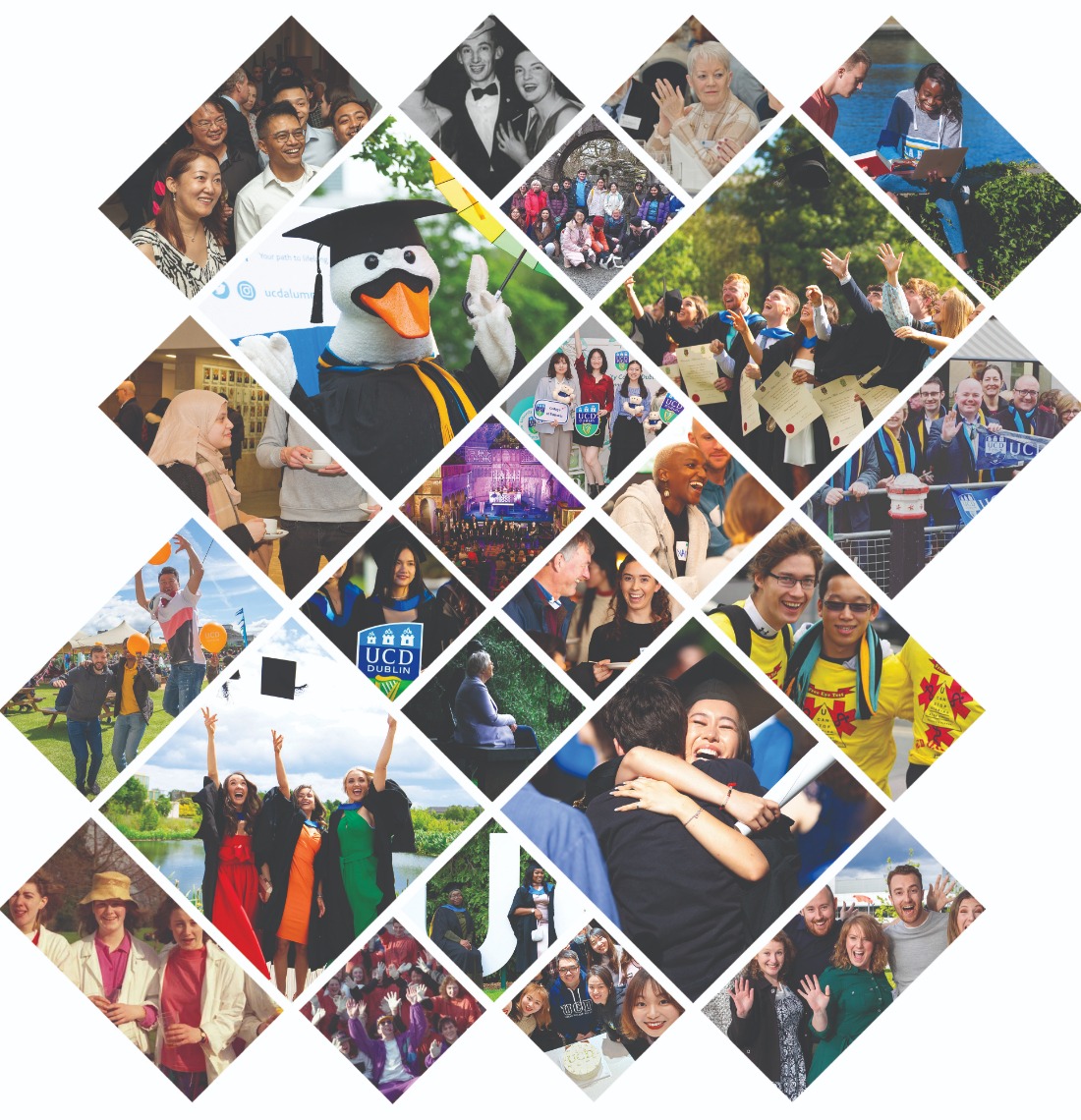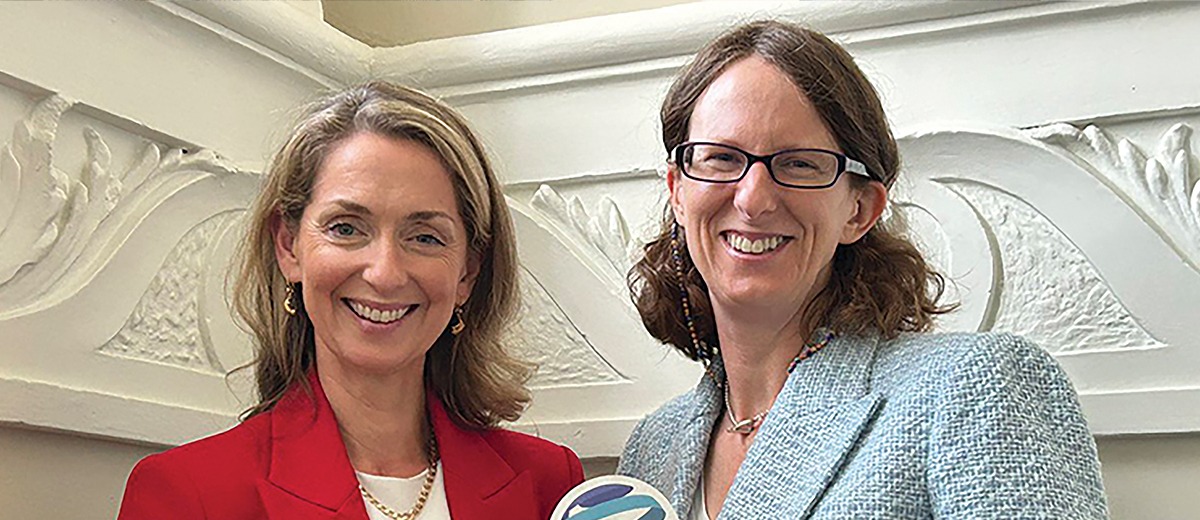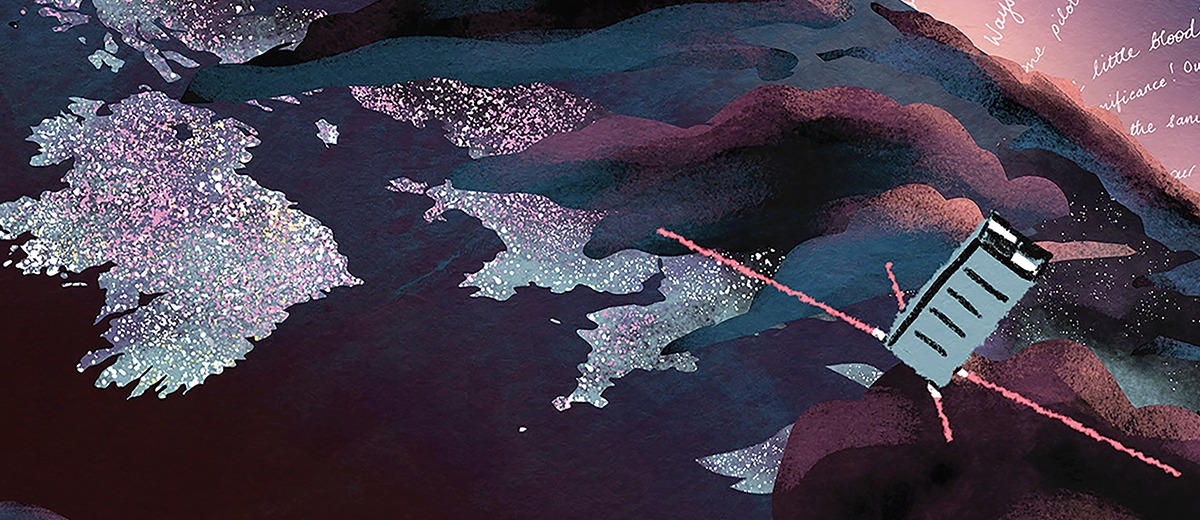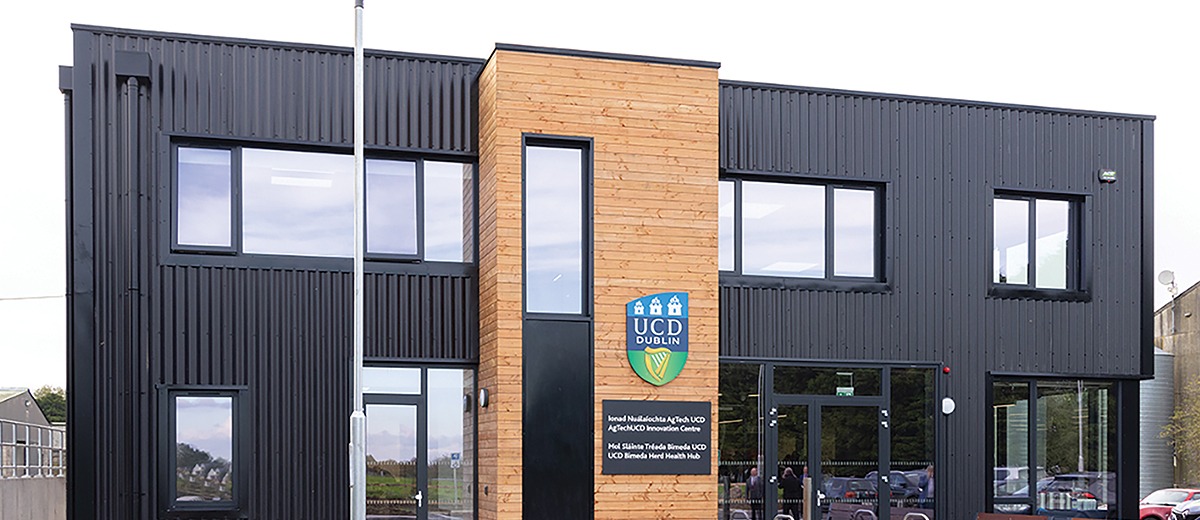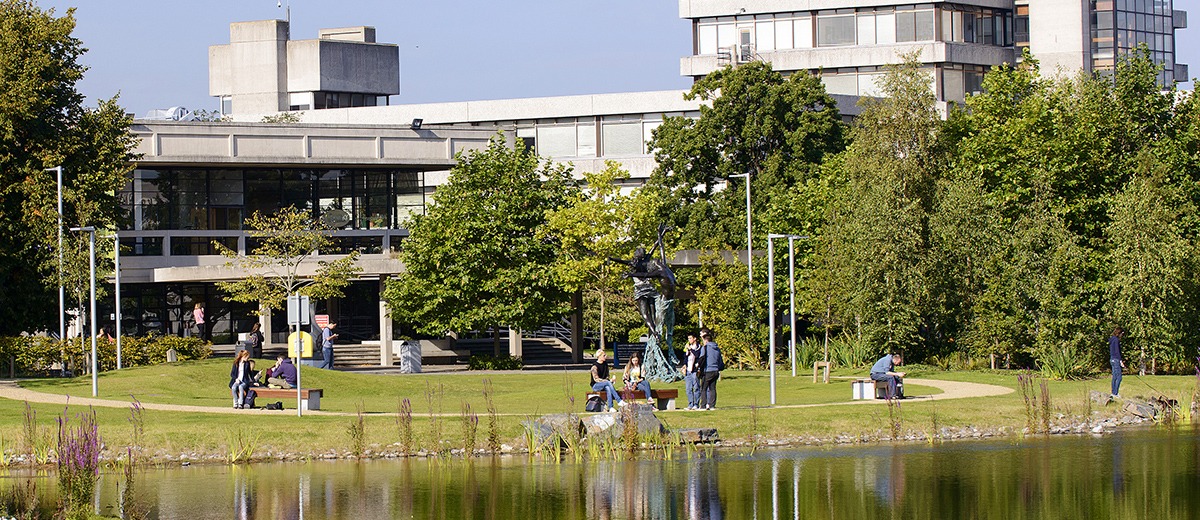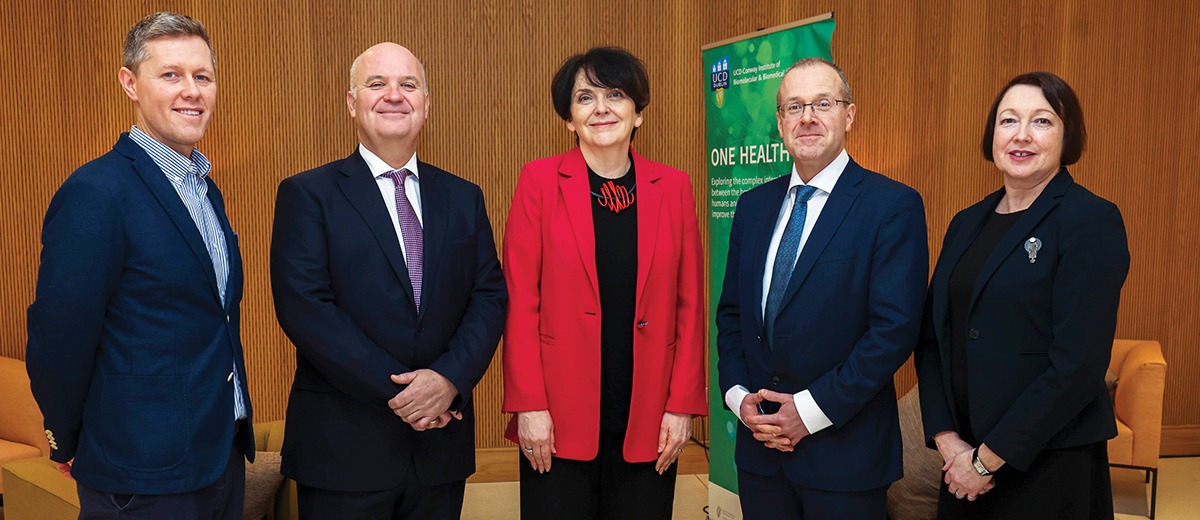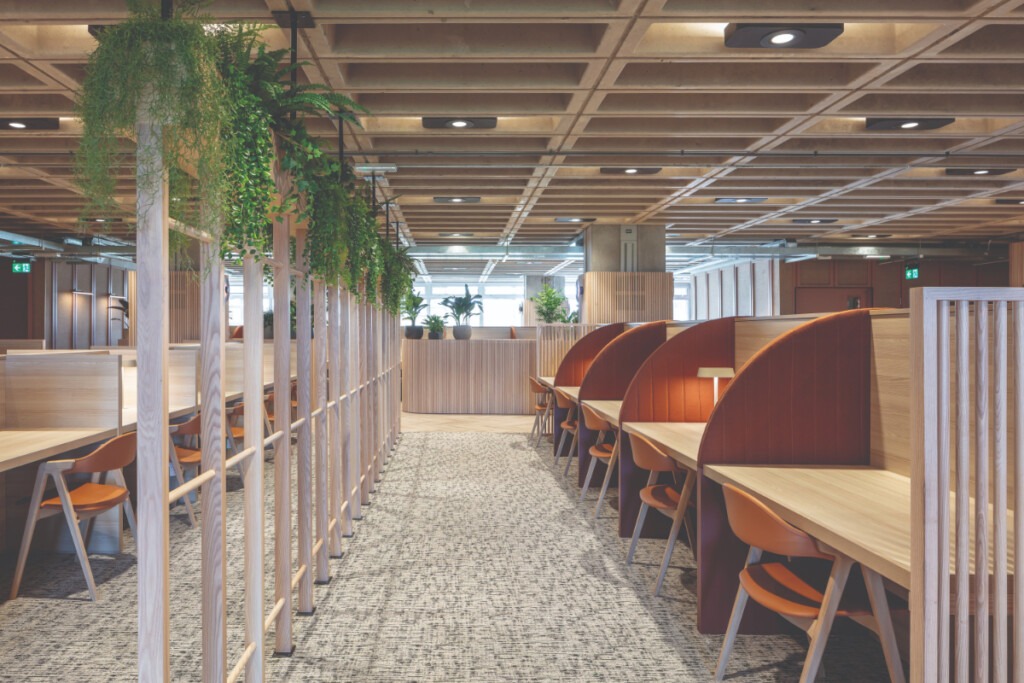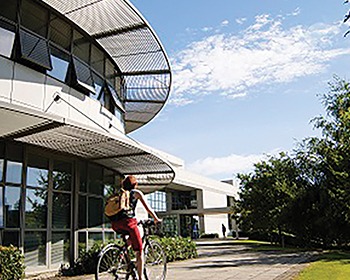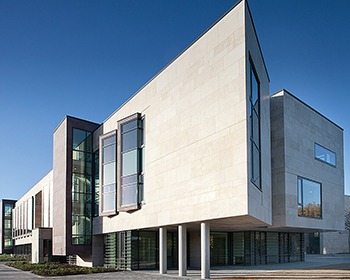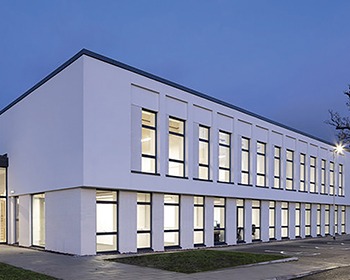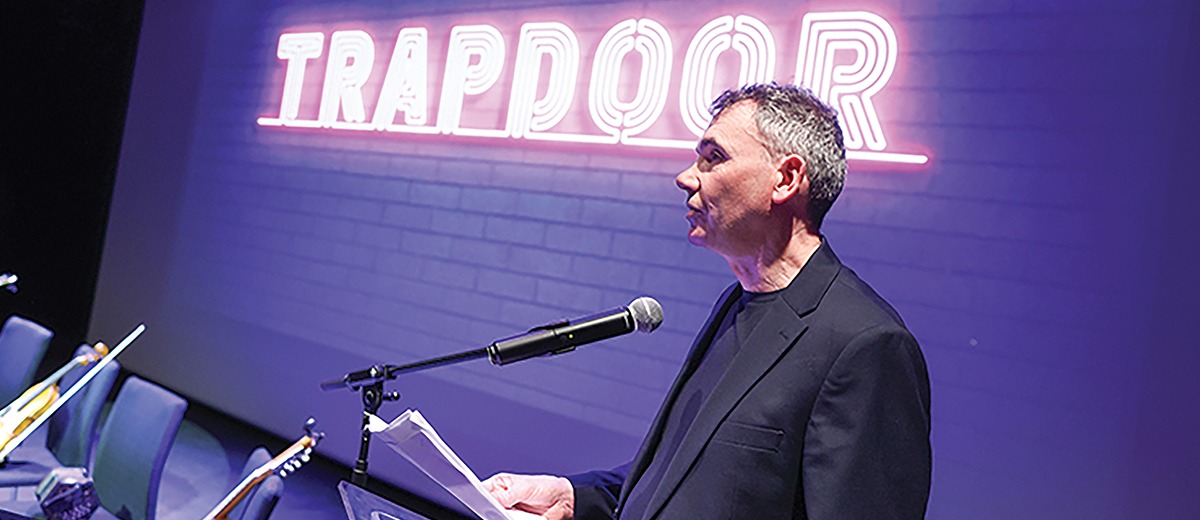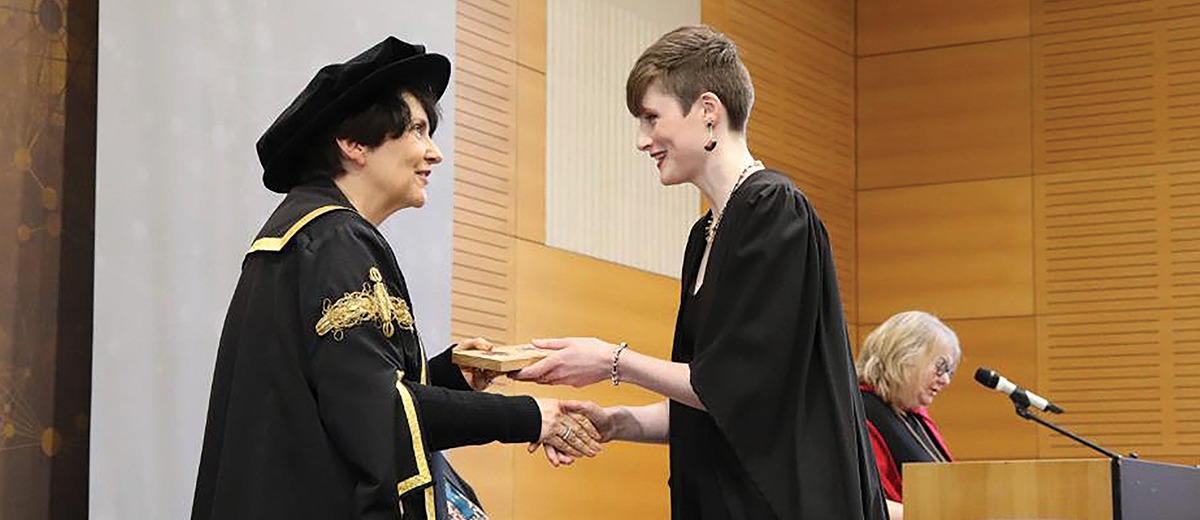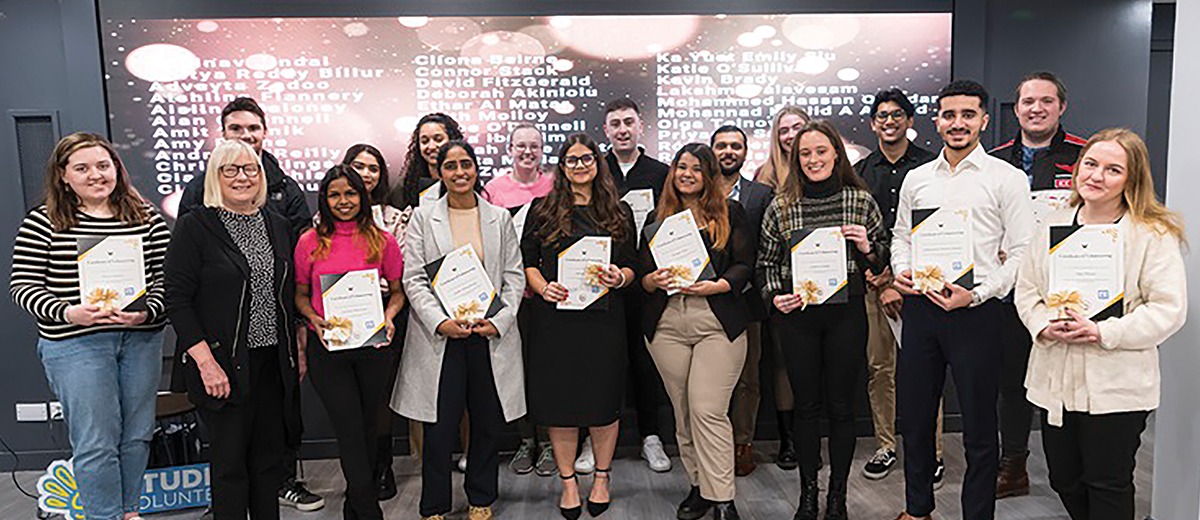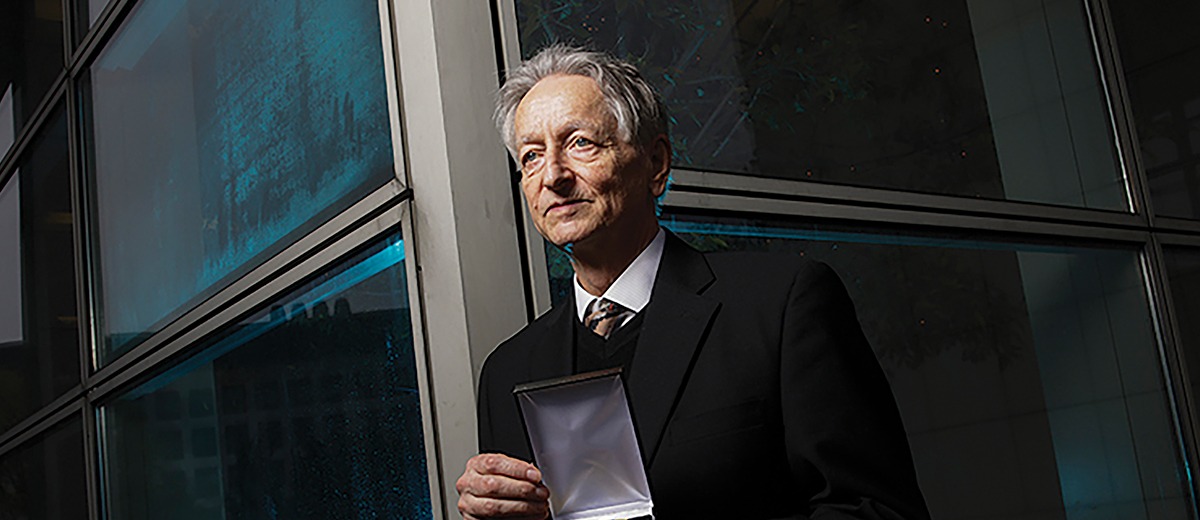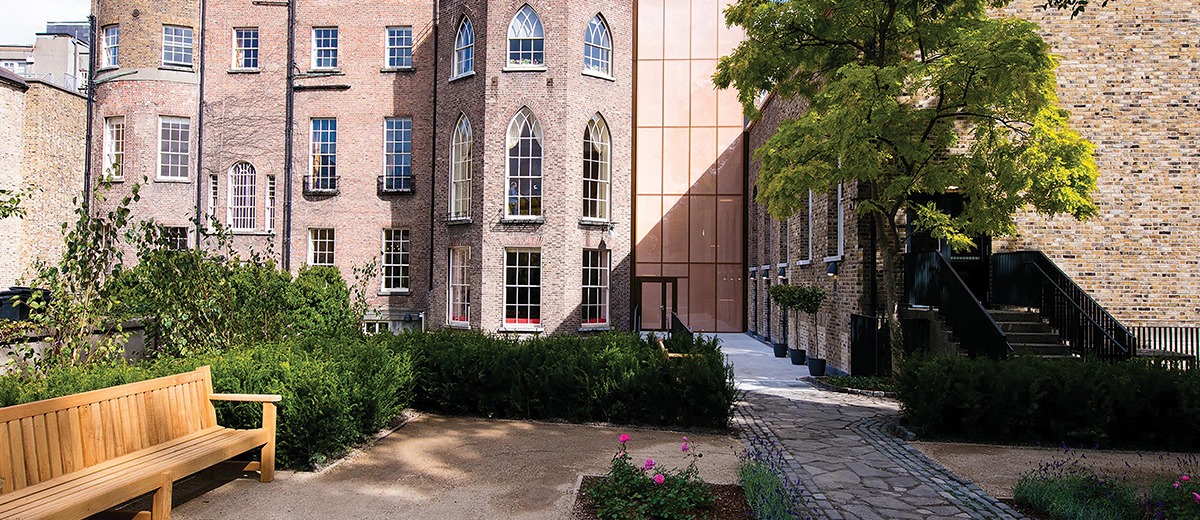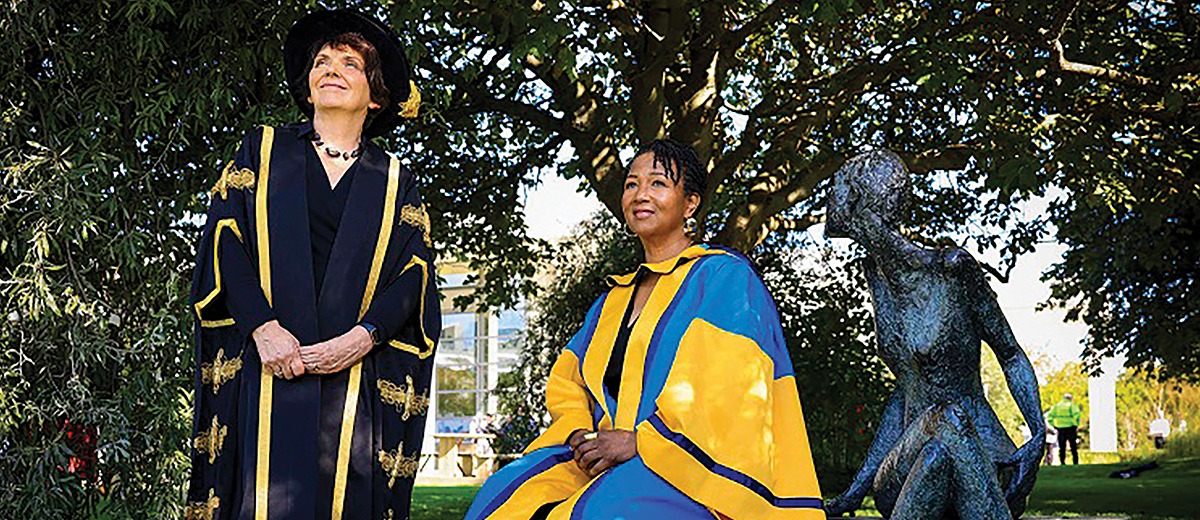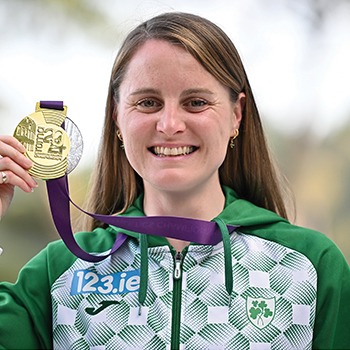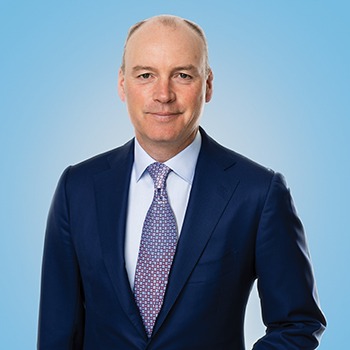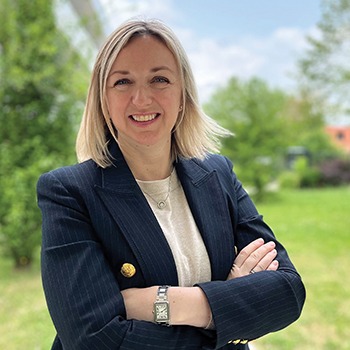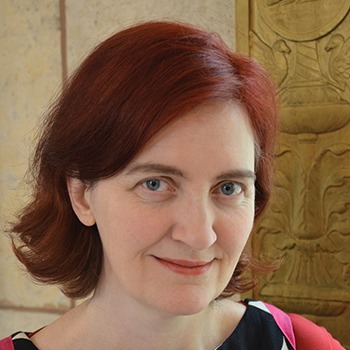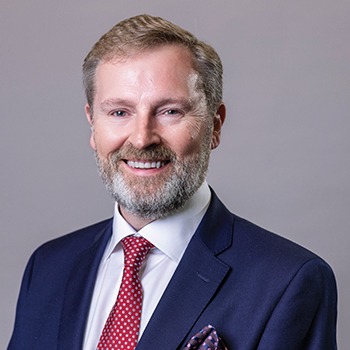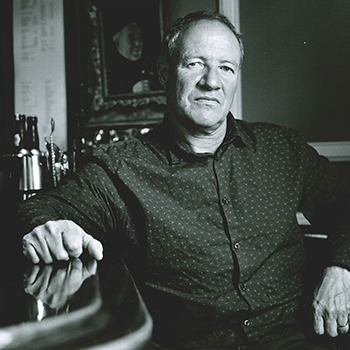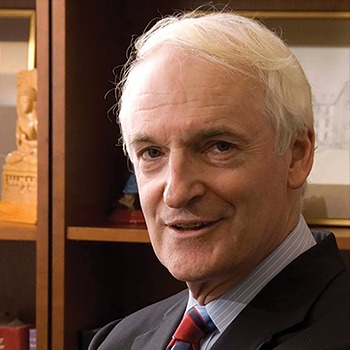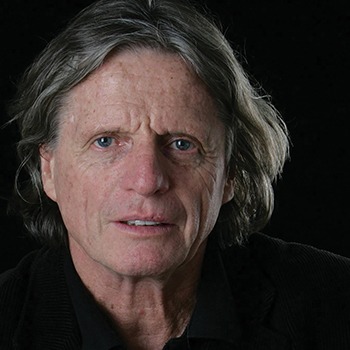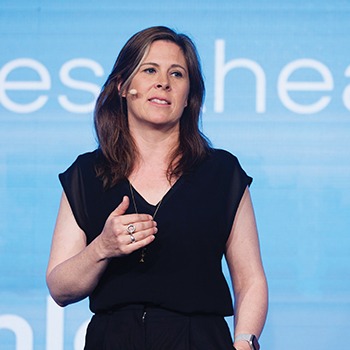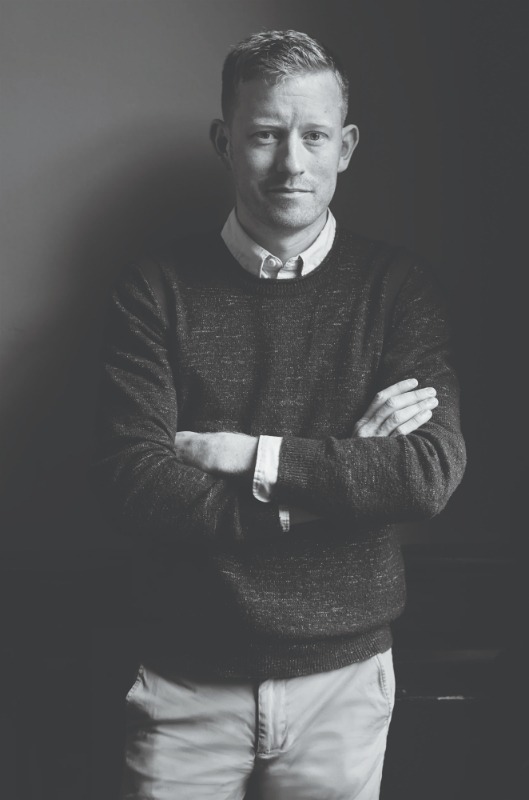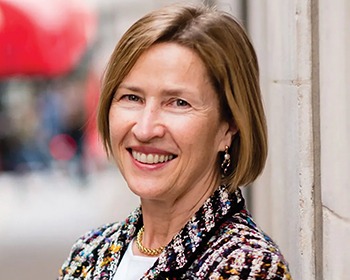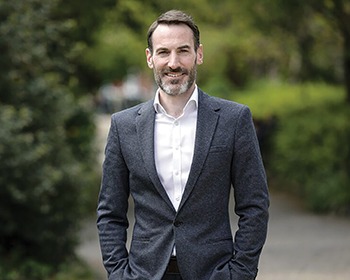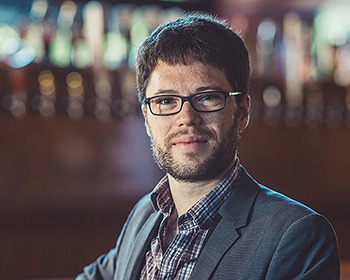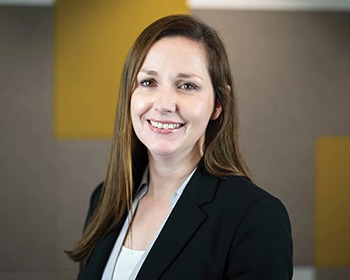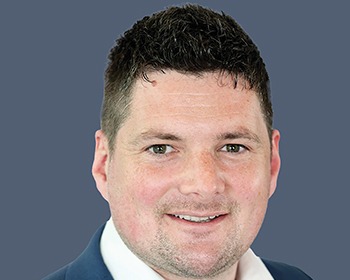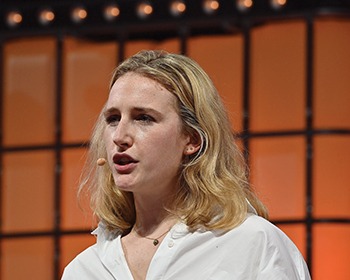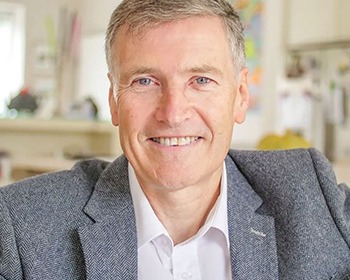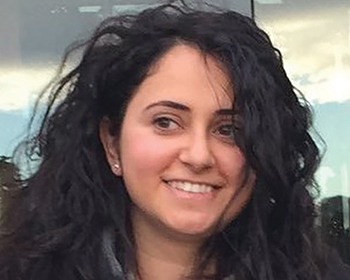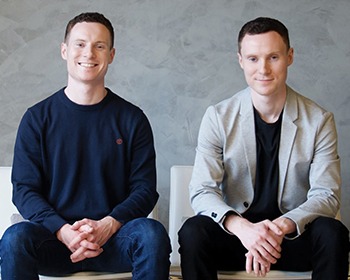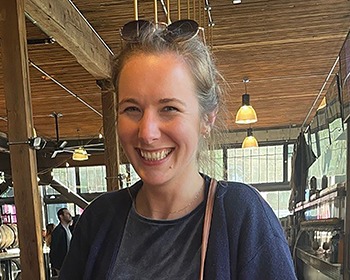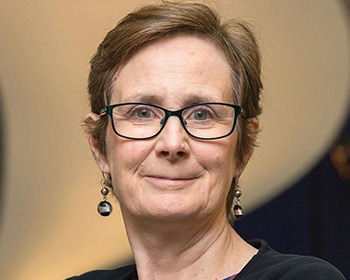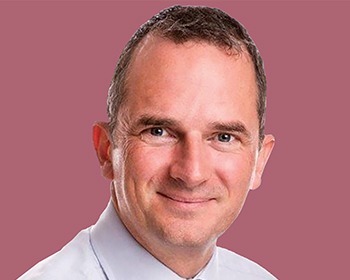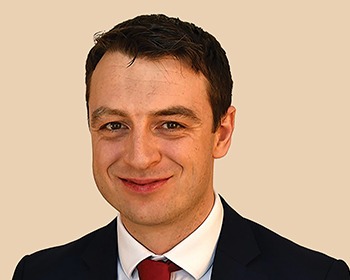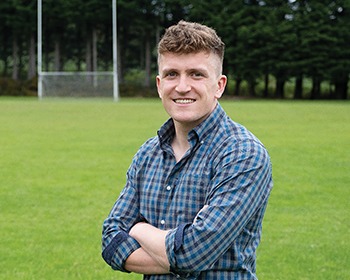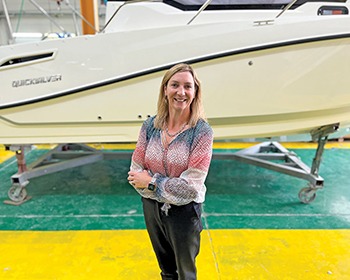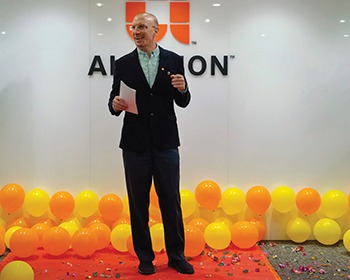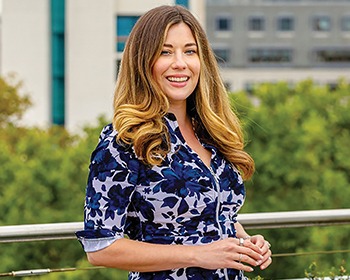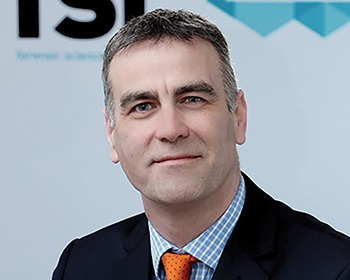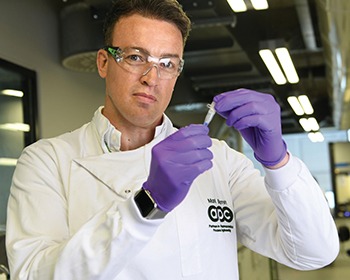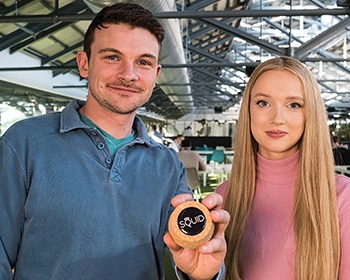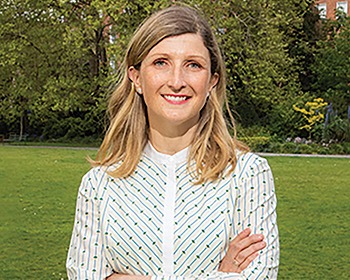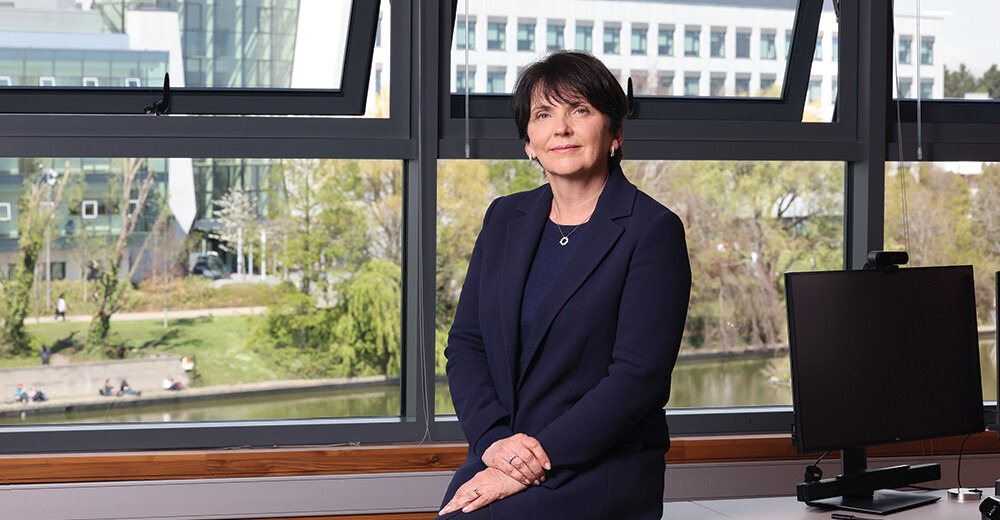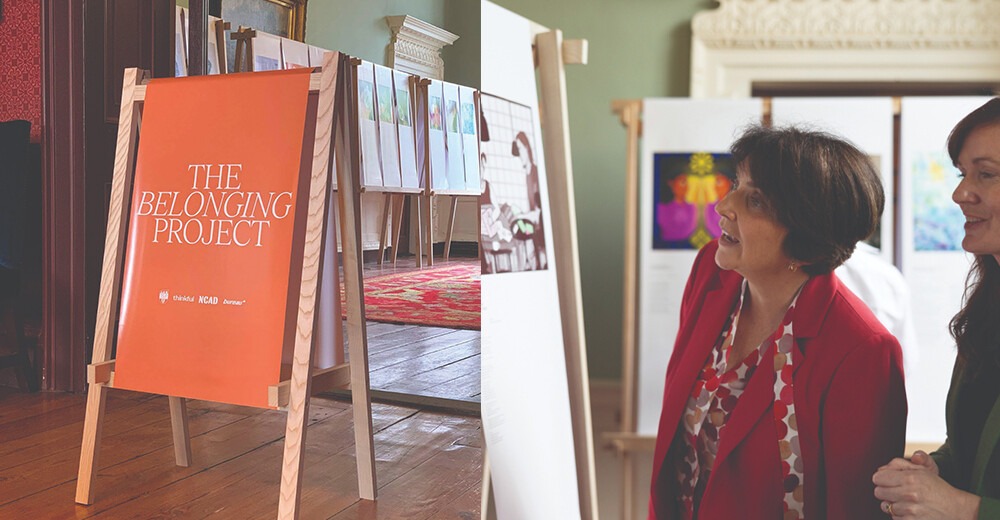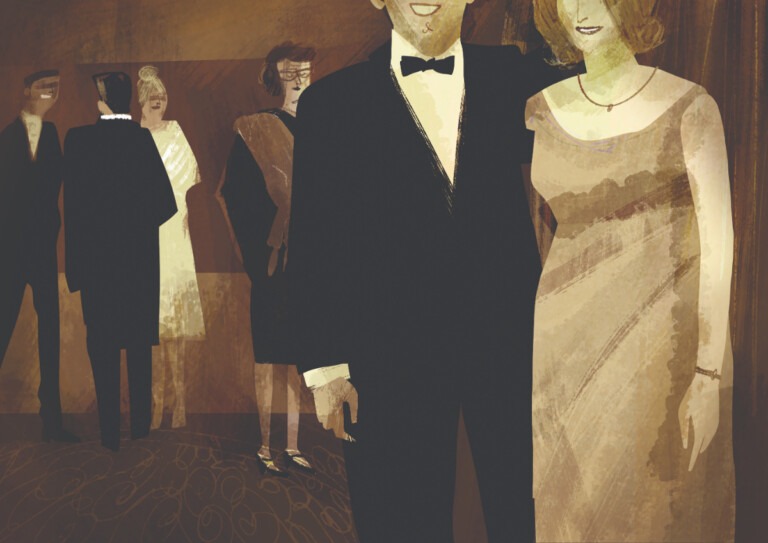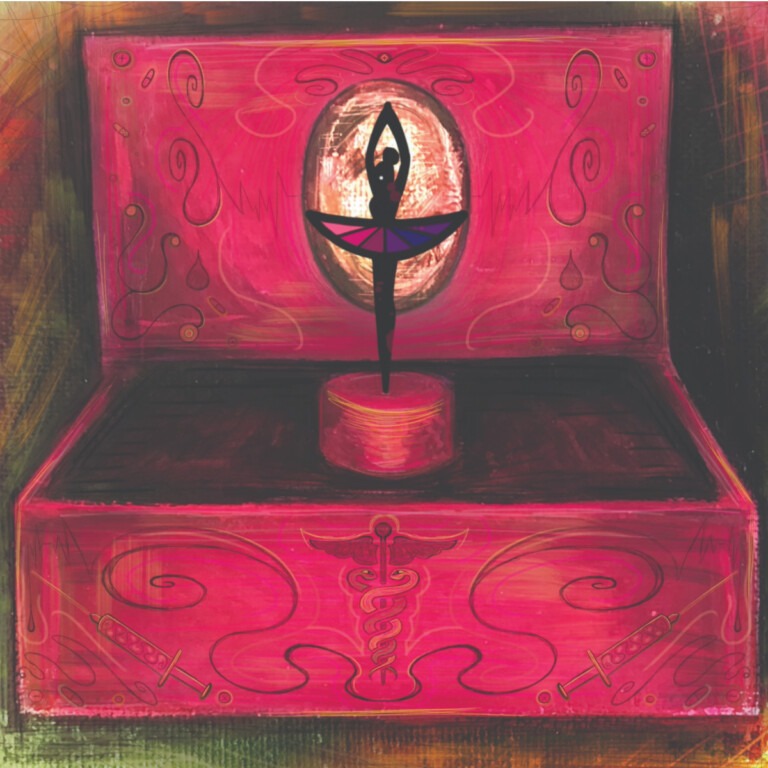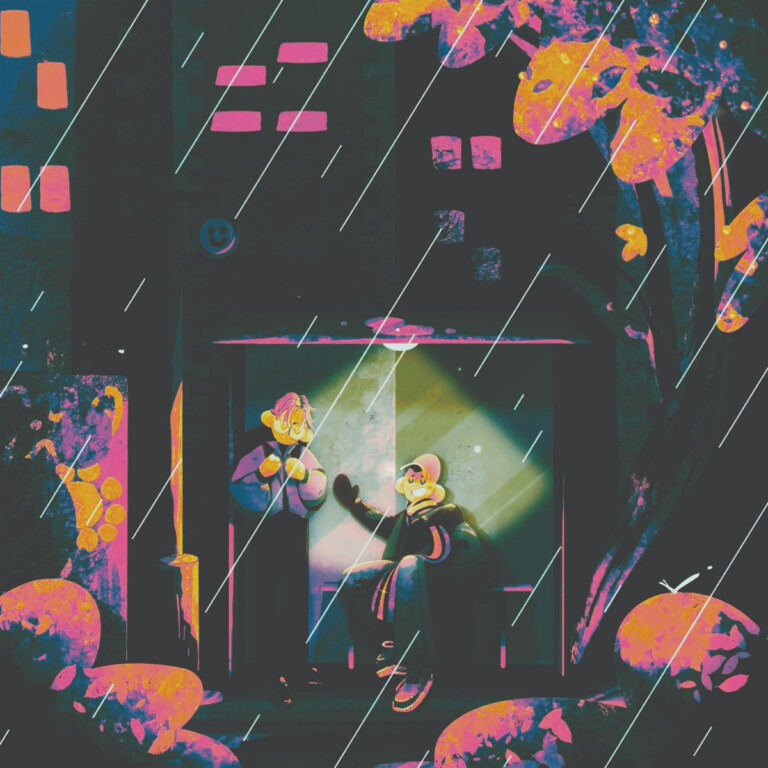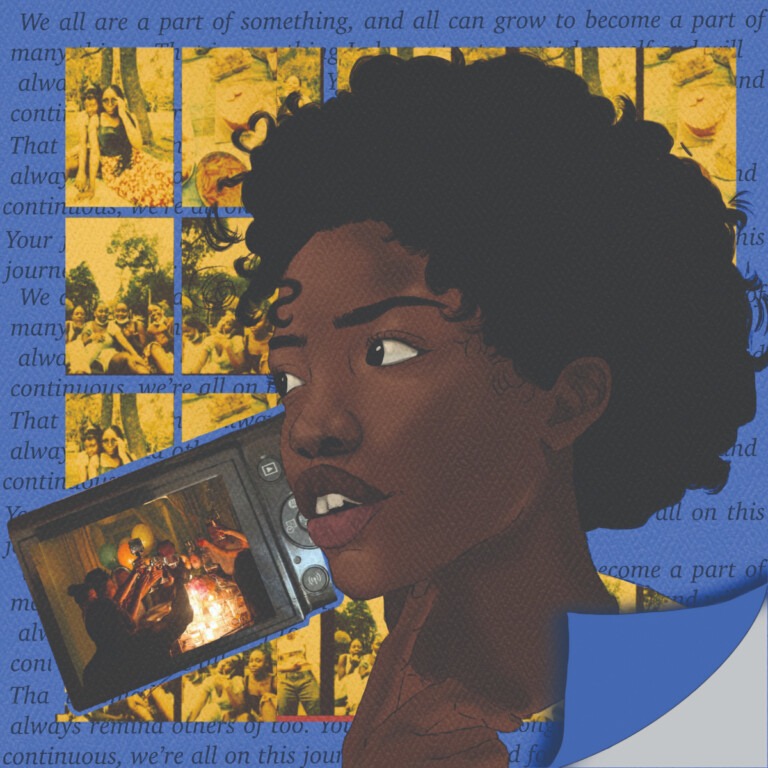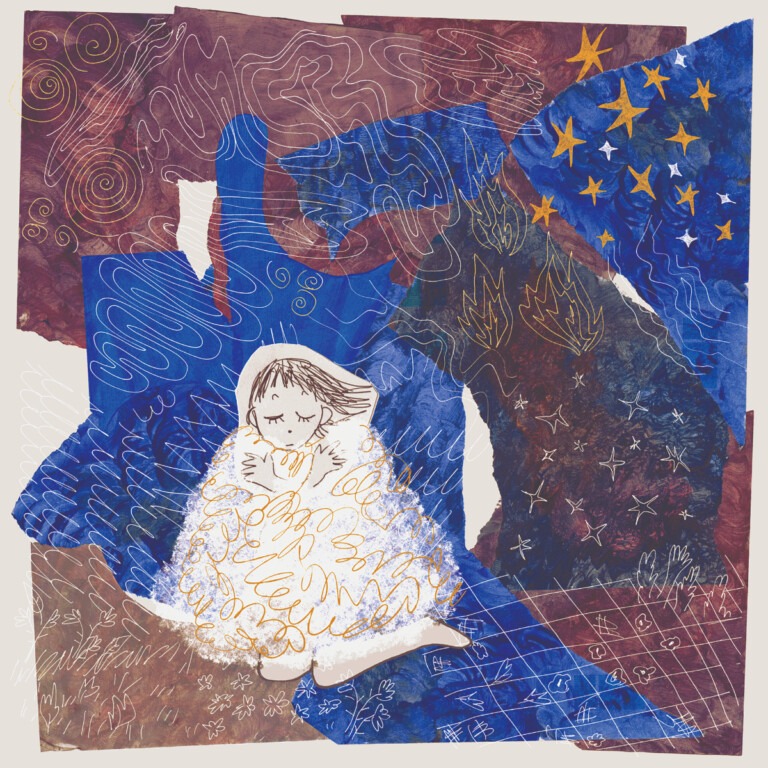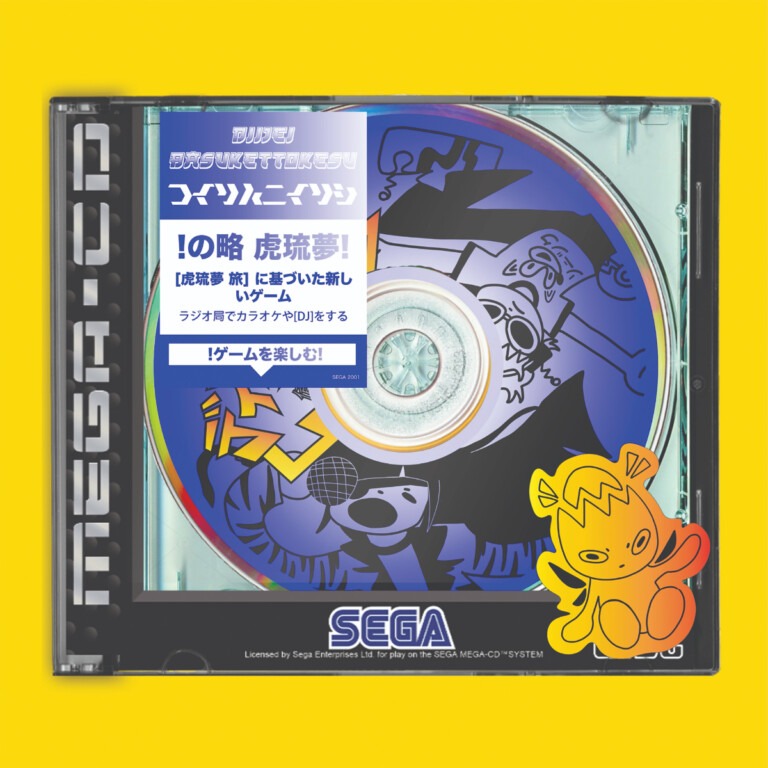Fis a bhí físeán margaíochta á dhéanamh aige don MA Scríobh & Cumarsáid na Gaeilge iUCD – cúrsa atá dírithe ar shainscileanna teanga a sholáthar do Mhic Léinn chun tabhairt faoi phostanna le Gaeilge, cosúil le haistriúcháin, eagarthóireacht, scríbhneoireacht chruthaitheach, iriseoireacht, agus na meáin – tháinig an Dr Cathal Billings, Ollamh Cúnta i Scoil na Gaeilge, an Léinn Cheiltigh agus an Bhéaloidis UCD, ar smaoineamh do thionscnamh pobalbhunaithe chun rannpháirtíocht i dteanga na Gaeilge a chothú.
“D’iarramar ar dhaoine an focal Gaeilge is fearr leo a lua. Bhí na freagraí tugtha chomh suimiúil, pearsanta, agus greannmhar sin go rabhamar ag iarraidh iad roinnt leis an bpobal. Mar sin, chuimhníomar ar ‘Fave Focal Wall UCD’ a dhéanamh in Áras Newman UCD. Chuireamar fáilte roimh dhaoine – cuir i gcás mic léinn, baill foirne, alumnas – an focal Gaeilge is fearr leo a scríobh ar chlár bán. Ba choincheap sách simplí é, ach spreag sé caidreamh dearfach leis an nGaeilge.”
“Bhí cuid de na focail roghnaithe ag daoine bunaithe ar an taithí a bhí acu leis an nGaeilge agus iad ar scoil. Scríobh duine amháin ‘leadránach’, agus scríobh duine eile ‘an bhfuil cead agam dul go dtí an leithreas’. Freisin, rinne duine tagairt do Chluastuiscint na hArdteiste nuair a scríobh siad “Léigh anois go cúramach, ar do scrúdpháipéar, na ceisteanna agus na treoracha a ghabhann le cuid A … bííííp”. Bhí baint ag cuid de na focail roghanithe le coláistí samhraidh sna Gaeltachtaí; mar shampla, luaigh duine ‘Ballaí Luimní’ – ainm damhsa ag céilithe. Bhí baint ag cúpla focal eile le féiniúlacht phearsanta nó féiniúlacht áitiúla, mar shampla: ‘bród, ‘bródúil’, agus ‘aerach’.”
“Tá an-chuid dár stair le feiceáil i logainmneacha na tíre” arsa an Dr Bilings. “Mar shampla, scríobhadh ‘Tír Chonaill’ agus ‘Dún na nGall’ ar an gclár bán, ainmneacha difriúla ar an gceantar céanna. Tagraíonn ‘Tír Chonaill’ do chóras ceannais dúchasach agus léiríonn ‘Dún na nGall’ (‘Fort of the Foreigners’) conas a tháinig athrú ar struchtúr poilitíochta na tíre seo. Go minic, ní bhíonn sna logainmneacha Béarla ach fuaimeanna, ach bíonn ciall leo sa Ghaeilge.
Is alumnas de chuid UCD é Manchán Magan (BA Gaeilge & Stair 1991), a raibh leabhar sárdhíola i 2020 aige, dar teideal 32 Words for Field, a phléann an nasc idir focail Ghaeilge atá fréamhaithe sa tírdhreach agus dár stair choiteann. Tarraingíonn Manchán aird ar an gcaoi a chuirtear ar ár suaimhneas muid nuair a mheabhraítear dúinn nach bhfuil ionann ach lúb sa slabhra i gcúltúr a théann siar na mílte bliain. Braitear an suaimhneas seo go háirithe nuair atá an oiread sin daoine ann ar domhan a bhfuil imní orthu faoin todhchaí. “Tá neart dúinn sa tóir ar nasc níos doimhne le rudaí tábhachtacha na laethanta seo – an tír, ár sinsir, nó an cultúr agus an oidhreacht óna dtagaimid. Bhí nasc láidir ag ár sinsir leis an tír, na séasúir, agus an t-alltar draíochtúil a cheapamar go raibh mórthimpeall orainn tráth.”
Bhí baint ag neart de na focail Gaeilge scríofa ar an gclár bán don ‘Fave Focal Wall UCD’ le hainmhithe agus leis an dúlra. Is cosúil go raibh siad roghnaithe ag daoine mar gheall ar shanasaíocht na bhfocal, nó cad as a dtáinig siad. Bhí ‘smugairle róin’ (‘jellyfish’) luaite go minic, mar shampla. Nuair a aistrítear an téarma seo go Béarla focal ar fhocal, cialaíonn sé “Spit (smugairle) from a Seal (róin)’. Freisin, bhí ‘Bóín Dé’ (‘ladybird’) luaite; téarma a chilaíonn “Little Cow (bóín) of God (Dé) sa bhrí litiúil. Má bhíonn tuiscint againn ar shanasaíocht focail, d’fhéadfadh sé cuidiú linn feasacht éiceolaíochta a chothú, freisin”, a dúirt an Dr Billings.
“Is iomaí focal Gaeilge a bhfuil baint aici leis an nádúr. Mar shampla, murach na focail ‘fraoch’ (heather) agus ‘luachra’ (rush), ní bheadh ‘cearc fraoigh’ (the hen of the heather) againn ar grousse ná ‘earc luachra’ (lizard of the rush) ar newt. I gcomparáid le teangacha eile, tá bua ar leith ag an nGaeilge maidir le téarmaíocht a bhfuil baint aici leis an dúlra, cúrsaí talmhaíochta, iascaireacht, an tírdhreach, ná an aimsir. Léiríonn sé seo an dlúthnasc atá ann idir an cine daonna, an tír, agus an domhan mórthimpeall orainn.”
Ag deireadh an 19ú haois, theip ar Athbheochan na Gaeilge an fhís a bhí ann chun an Ghaeilge bheith mar theanga an phobail a bhaint amach. Sin ráite, áfach, tháinig athrú ar mheon na ndaoine maidir leis an nGaeilge; bhí ról lárnach tugtha don Gaeilge i struchtúir an stáit nua ó 1922 ar aghaidh.
“Bhí drochthaithí ag an-chuid daoine leis na nGaeilge agus iad ar scoil. Chuir sé le meon diúltach a bhí ann don teanga, dá bharr”, a dúirt an Dr Billings, a bhain amach BA, MA, agus PhD i UCD. “Creidim go bhfuil meon dearfach i leith na Gaeilge ag daoine go fóill – Mar shampla, tá méadú tagtha ar an éileamh don oideachas trí mheán na Gaeilge sna Gaelscoileanna. Freisin, tá spéis ag níos mó daoine an Ghaeilge a fhoglaim tar éis dóibh an t-oideachas foirmiúil a chur i gcrích.”
Treisíonn an leasú ó 2021 ar Acht na dTeangacha stádas na Gaeilge mar phríomhtheanga an Stáit agus cruthaíonn sé deiseanna fostaíochta ar fud na hearnála poiblí. Feictear agus cloistear tionchar an Achta gach lá sna meáin chlóite agus sna meáin chraolta, agus braitear anois go bhfuil ról tábhachtach ag an nGaeilge sa lá atá inniu ann. Mar shampla, bhí An Cailín Ciúin ar an gcéad fadscannán a bhain áit amach ar an ngearrliosta do na hainmniúcháin don Ghradam Oscar don Fhadscannán Idirnáisiúnta is Fearr. Tá amhrán ag Hozier dar teideal ‘Uiscefhuaraithe’ – téarma nach féidir a aistriú go Béarla go gonta ach a chialaíonn ‘rud atá déanta fuar ag uisce’. Freisin, tá leagan iomlán Gaeilge den amhrán ‘Heroes or Ghosts’, dar teideal ‘Taibhsí nó Laochra’ ag an mbanna ceoil The Corona’s. Tá neart amhráin Gaeilge cumtha ag an tríréad hip-hop, Kneecap, le déanaí.
Thug an dearthóir faisin, Róisín Pierce, ‘Mná i Bhláth’ agus ‘Bláthanna Fiáin’ ar a bailiúchán mór le rá. Bhí aistriúchán Gaeilge curtha san áireamh ag Seán McGirr, stiúrthóir cruthaitheach an lipéid Alexander McQueen, nuair a bhí a chéad bhailiúchán faisin don ardán taispeána á sheoladh aige.
“Feictear go bhfuil níos mó deiseanna ná riamh ann dóibh siúd a bhfuil caighdeán ard bainte amach acu sa Ghaeilge. 20 bliain ó shin, nuair a thosaigh mé mo chéim, bhí an chuma ar an scéal gurbh í an mhúinteoireacht an t-aon rogha a bhí ann ó thaobh gairme de. Anois, áfach, tá neart cairde, comhscoláirí, agus iar mhic léinn de mo chuid, tar éis gairmeacha ráthúla bheith acu mar aistritheoirí, dlítheangeolaithe, scríbhneoirí, eagarthóirí, taighdeoirí, léachtóirí, agus státseirbhísigh,” a dúirt an Dr Billings.
Tagann an-chuid Gaeilgeoirí ó chúlraí éagsúla, ní hamháin in Éirinn ach thar lear chomh maith. Tacaíonn siad leis an nGaeilge. Is sampla maith é an Dr Fangzhe Qiu, Ollamh Comhlach i Scoil na Gaeilge, an Léinn Cheiltigh agus an Bhéaloidis UCD. Ní cainteoir dúchais é an Dr Qiu, ach tá an-dámh aige don Ghaeilge agus tá dearcadh ar leith aige uirthi.
“Is teanga neamhghnách í an Ghaeilge ó thaobh struchtúir de, a bhfuil traidisiún liteartha láidir aici a théann siar 1,300 bliain.” Dar leis an Dr Qiu, is é an bealach is fearr chun daoine a mhealladh a gcuid Gaeilge a úsáid ar bhonn laethúil ná a chinntiú go bhfuil sí “ábhartha agus luachmhar” sa chomhthéacs.
“Cosúil le gach teanga eile, is iomaí rud gur féidir a léiriú go cruinn sa teanga dhúchais amháin. Mar shampla, ní hionann ‘Bíodh an rath ort’ ná ‘slí na fírinne’ agus a leithéidí sa Bhéarla.” Tá téarmaí ann sa Ghaeilge nach bhfuil gá le haistriú. Feictear an nós seo ar fud na cruinne. Mar shampla, baineann na Moslamaigh leas as phrásaí as Araibis, agus bhain mo sheanmháthair leas as an Malaeise chun a hoidis a mhúineadh dúinn. Sa chás sin, ní féidir ‘sambal’ ná ‘kuey teow’ a rá ar bhealach difriúil.”
Tuigtear don Dr Qiu go mbeidh todhchaí na Gaeilge ag brath ar fhoghlaimeoirí ó thíortha eile.
“Ba cheart go mbeadh an Ghaeilge neamhspleách ón náisiúnachas agus ba cheart go mbeadh sí ar fáil d’foghlaimeoirí ar fud na cruinne. Mar shampla, tá líon na ndaoine atá foghlaim Gaeilge ar DuoLingo níos airde ná líon na nGaeilgeoirí ar domhan.”
Más rud é go bhfuil spéis ag duine feabhas a chur ar a chuid Gaeilge, luann an Dr Billings go bhfuil níos mó deiseanna agus bealaí ann chun í a fhoghlaim ná riamh.
Éist le podchraoladh (is alumnae de chuid UCD iad na láithreoirí ar na podchraoltaí iontacha (‘How to Gael’ agus ‘Beo ar Éigin’). Bíodh Gaeilgeoirí dhíograiseacha á leanúint agat ar na meáin shóisialta, nó féach ar na deiseanna foghlama atá ar fáil i UCD.
Fiú mura bhfuil ach cúpla focal agat, is amhlaidh is saibhre a bheith do shaol dá bharr.
The Rise of the Cúpla Focal
When Dr Cathal Billings, Assistant Professor at the School of Irish, Celtic Studies and Folklore, was creating a marketing video for the MA Scríobh agus Cumarsáid (Writing and Communications) programme at UCD, aimed at providing students with the advanced language skills required for jobs in Irish, including translation, editing, creative writing, journalism and media, he stumbled across an idea for a community-based initiative to encourage engagement with the Irish language.
“We asked contributors to name their favourite word in Irish. The answers were so interesting, personal and funny, we wanted to make use of the material, so we created the Fave Focal wall in the Arts/Newman building at UCD, with all passers-by – students, staff, alumni – encouraged to write their favourite Irish word on the wall. It was a really simple, but positive interaction with Irish.”
Some words chosen reflected experiences people had of Irish at school, he says: “One wrote ‘leadránach’, another ‘an bhfuil cead agam dul go dtí an leithreas’, and another referenced the Leaving Cert aural exams with ‘Léigh anois go cúramach na ceisteanna agus na treoracha a ghabhann le cuid A… bííííp’. Some entries referred to the impact of Gaeltacht summers on students (the ‘Ballaí Luimní’ dance at nightly Céilithe included). Others related to personal or local identity, with words such as ‘bród’ (pride), ‘bródúil’ (proud) and ‘aerach’ (gay).
“So much of our history can be read in our placenames,” says Dr Billings, “For example, both ‘Tír Chonaill’ and ‘Dún na nGall’ were written on the wall, both referencing Donegal. One – Tír Chonaill – reflects the native ruling system and the other – Dún na nGall/Fort of the Foreigners – shows how the political structure of our country changed in time. Our placenames in English are often just sounds, but in Irish they have meaning.”
UCD alumnus Manchán Magan (BA Irish and History 1991), whose 2020 international bestseller, 32 Words for Field, explored how the rich rooted-in-landscape nature of Irish words gives us clues to our collective past, points out that in an increasingly globalised world, where so many of us can feel uncertain about the future, it can be reassuring to acknowledge that we are the current iteration of a culture that goes back many thousands of years. “So many of us are seeking a deeper connection with something meaningful these days – the land, our ancestors, or the culture and heritage from which we arise. Our ancestors were deeply rooted to the land, the seasons, and the magical Otherworld that we once believed was all around us.”
Many of the words on UCD’s Fave Focal wall related to animals and the natural world, and their etymology, or underlying meaning, is probably what made them stick with the people who chose them. ‘Smugairle róin’, meaning jellyfish, featured a lot, for example. It means literally ‘seal spit’, and you can really imagine a jellyfish lying on the shore. Bóín Dé featured too, which is Irish for ladybird but literally means ‘God’s Little Cow’.
Understanding the etymology of words can help with nurturing ecological awareness too, says Dr Billings: “‘Grouse in Irish is ‘cearc fraoigh’, or hen of the heather, while a newt is ‘earc luachra’, or lizard of the reeds – without the heather or the reeds, we won’t have the grouse or the newt. Irish as a language is particularly rich in terms relating to the natural world, agriculture, fishing, landscape, the weather, for example, which reflects our close connection as a people to the land and the elements.”
The revival of Irish in the late 19th century failed in its mission to make Irish the vernacular of the Irish people, but it did change people’s attitude to the language. This change in attitude resulted in Irish being given a central role in the structures of the new state from 1922 on.
“The way Irish was taught in the intervening years – often with the stick rather than the carrot – resulted in many people taking a negative stance towards the language,” says Dr Billings, who did his BA, MA and PhD at UCD. “But I think a positive attitude towards Irish persists, reflected in the increased demand for immersive Irish education in Gaelscoileanna, for example, and in the amount of people taking an interest in learning Irish after completing their formal education.”
The 2021 amendment to the Official Languages Act underpins the status of Irish as the first official language of the state and creates job opportunities across the public sector. The impact of the Act can be seen and heard every day, in print and broadcast media, and contributes to the idea that Irish is an important part of modern life.
Colm Bairéad’s An Cailín Ciúin became the first Irish-language film to be shortlisted for an Oscar in the Best International Feature Film category. Hozier’s ‘Uiscefhuaraithe’ is inspired by the untranslatable meaning of its title: ‘something that has been made cold by water’. The Coronas’ Taibhsí nó Laochra (a translation of their song ‘Heroes or Ghosts’) is written entirely in Irish, as are many recent hits from Belfast hip-hop trio Kneecap. Fashion designer Róisín Pierce named her acclaimed collections Mná i Bhláth and Bláthanna Fiáin, and Creative Director of Alexander McQueen, Seán McGirr included Irish translations in the introduction for the livestream of his debut runway collection.
“For those who bring their Irish to a high level,” says Dr Billings, “there are more employment opportunities than ever before. When I started my degree 20 years ago it seemed teaching was the only career path for graduates of Irish, but since then friends, classmates and students of mine have made successful careers as translators, lawyer-linguists, writers, journalists, editors, researchers, lecturers and civil servants.”
Irish as a language is particularly rich in terms relating to the natural world, agriculture, fishing, landscape, the weather …”
There is also a very diverse Irishspeaking cohort in Ireland and abroad, advocating for the Irish language. Dr Fangzhe Qiu, also an Associate Professor at the School of Irish, Celtic Studies and Folklore, and an alumnus of UCD, is a good example. As a non-native speaker with an infectious enthusiasm for Irish, he has a unique perspective, describing Irish as “structurally unusual, with a very strong literary tradition that stretches back 1,300 years”.
Dr Qiu thinks the best way to encourage people to use a little Irish in their daily life is to “make Irish relevant and irreplaceable. Like in every language, there are many things that can only be expressed accurately in Irish, ‘bíodh an rath ort’ is definitely not the same as ‘good luck’ and ‘slí na fírinne’ not the same as ‘path of truth’. The goal should be that people realise that there are things that they can only express in Irish, like Muslims use Arabic phrases, or, when my grandmother described her recipes, she had to switch to Malay – there is simply no other way to say ‘sambal’ or ‘kuey teow’”.
The resilience of the Irish language, maintains Dr Qiu, will also rely on more non-Irish learning the language. “Irish should be detached from nationalism and available to learners all over the world. The Duolingo language app, for instance, has more people learning Irish than there are Gaeilgeoirí in the world.”
To alumni who are thinking about brushing up on their Irish again, Dr Billings points out there are more opportunities and ways to learn Irish than ever before. Listen to a podcast (How to Gael and Beo Ar Éigean, both presented by UCD alumni, are excellent), follow enthusiastic Gaeilgeoirí on social media, and check out learning options at UCD. Even if you use just one fave focal or two, your life will be all the richer for it.
